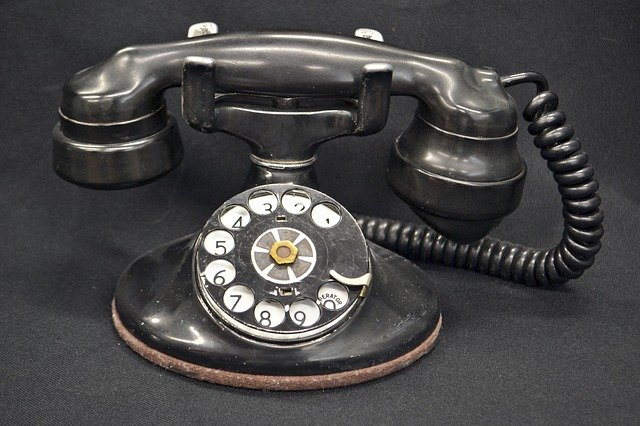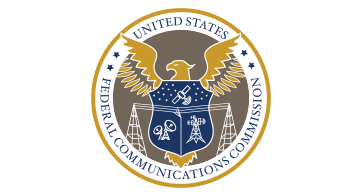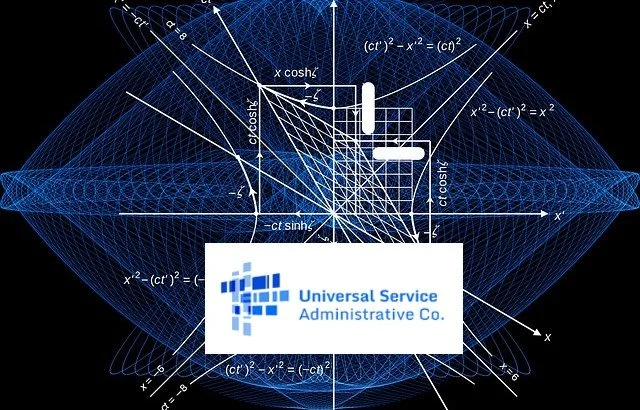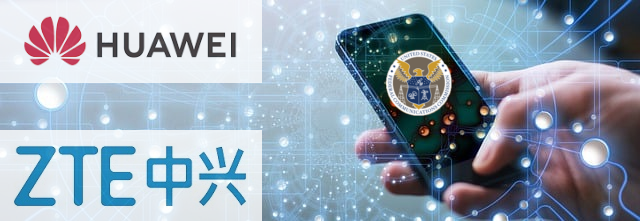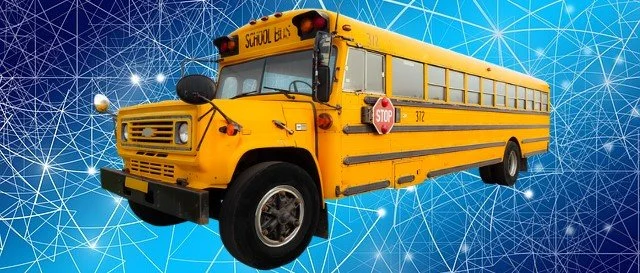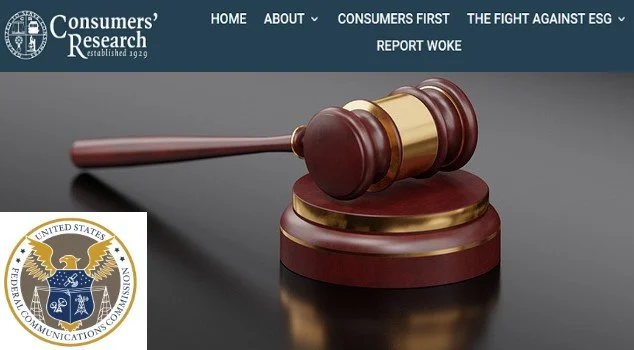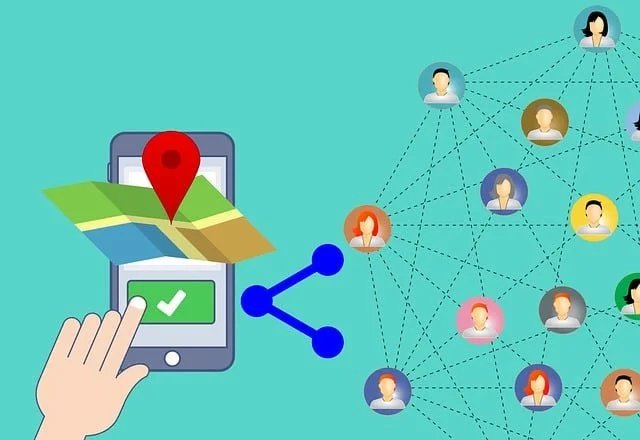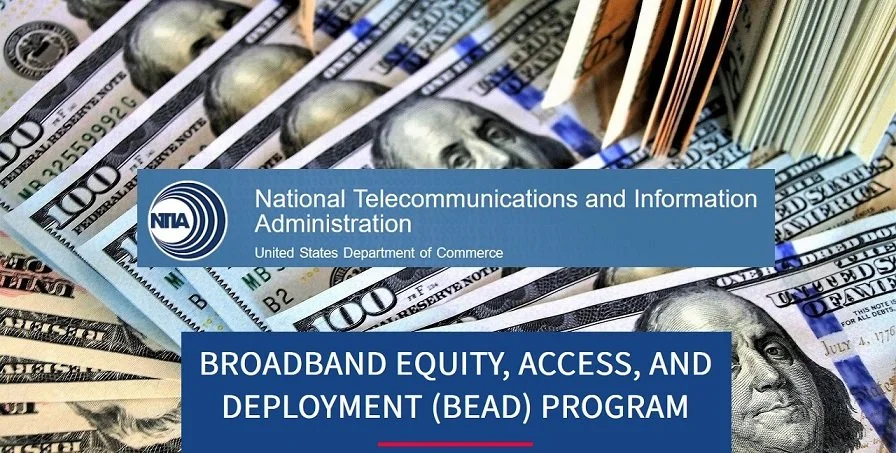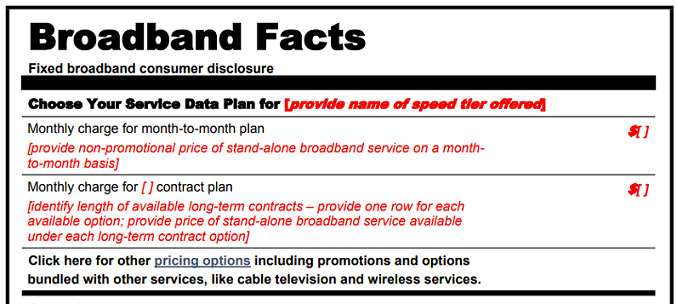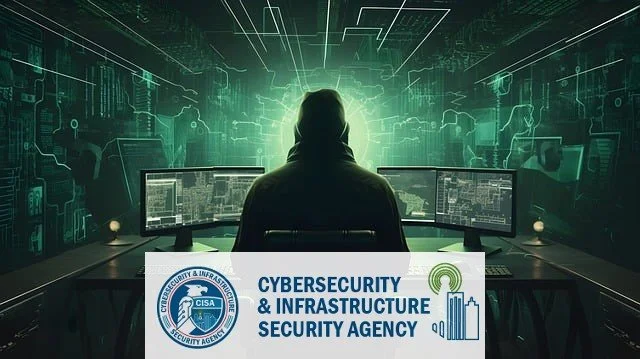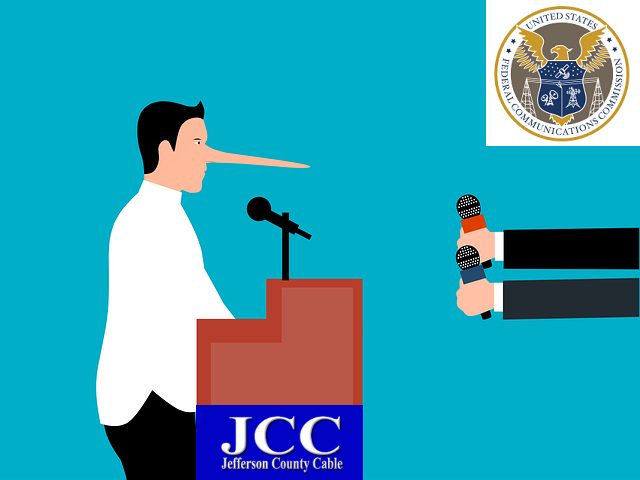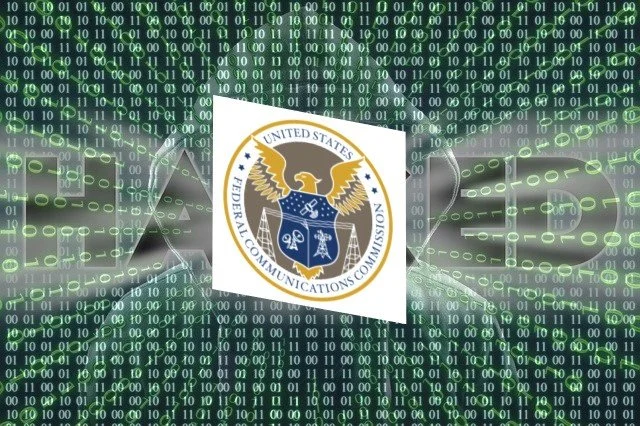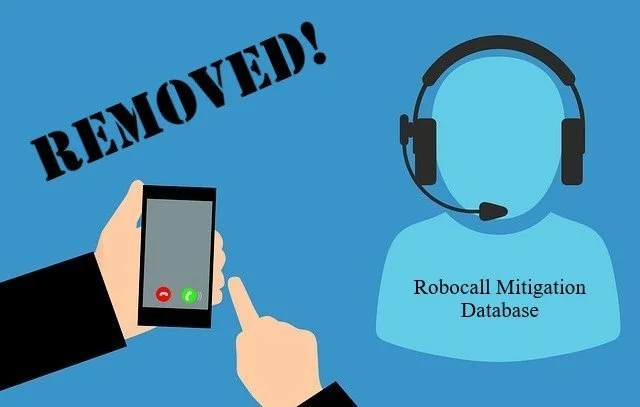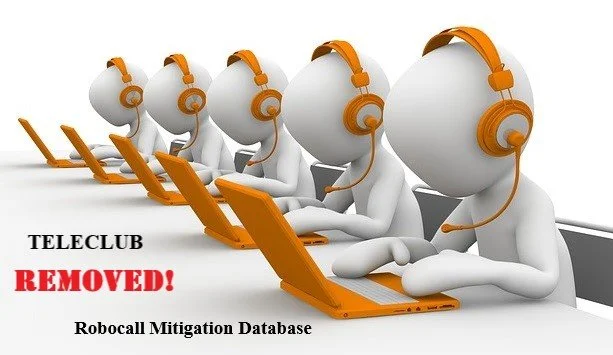The Latest News
FCC | Broadband | Wireless | Congress | Cyber
New Record! USF Contribution Factor For Fourth Quarter Of 2024 – 35.8 Percent
September 11, 2024 – The FCC’s Office of Managing Director (OMD) has announced that the proposed universal service fund (USF) contribution factor for the fourth quarter of 2024 will be 35.8 percent. If the FCC takes no action on the proposed USF contribution factor within 14 days, it will be declared approved.
The 35.8 percent contribution factor for 4Q 2024 sets a new record, besting the previous all-time high of 34.6 percent which occurred in 1Q 2024. It’s also only a slight increase from the 34.4 percent contribution factor that was used for 3Q 2024. Historical information on quarterly universal service fund contribution factors is available online from the FCC. All USF contribution factors for 2024 are below:
1Q 2024 – 34.6%
2Q 2024 – 32.8%
3Q 2024 – 34.4%
4Q 2024 – 35.8%
2024 Average USF Contribution Factor – 34.4%
For the fourth quarter of 2024, the Universal Service Administrative Company (USAC) projects $7.972750 billion in total interstate and international end-user telecommunications revenues will be collected ($8.302171 billion was projected for 3Q 2024). USAC estimates that $2.084640 billion is needed to cover the total demand and expenses for all Federal universal service support mechanisms (revenue requirement) in the fourth quarter of 2024 (the 3Q 2024 demand was estimated at $2.10741 billion). Total fourth quarter 2024 demand includes projected program support, administrative expenses, and true-ups and adjustments, which breaks out among the USF support mechanisms as follows:
E-Rate Schools & Libraries: $666.28 million (3Q 2024 was $639.08 million)
Rural Health Care: $150.05 million (3Q 2024 was $93.57 million)
High-Cost: $1.06994 billion (3Q 2024 was $1.17122 billion)
Lifeline: $198.37 million (3Q 2024 was $203.54 million)
FCC Issues Notice Of Apparent Liability To Broadband Providers For Apparent Violations Of ACP Rules
September 11, 2024 – The Federal Communications Commission (FCC) has issued a Notice of Apparent Liability (NAL) against four broadband internet access service providers that allegedly violated the FCC’s Affordable Connectivity Program (ACP) Transparency Data Collection (TDC) rules by failing to submit certified complete ACP plan and subscribership data. The four providers are:
SprintFone Inc. ( FRN: 0032347759; File No.: EB-IHD-24-00036894; NAL/Acct No.: 202432080022)
IJ Wireless, Inc. (FRN: 0032944597; File No.: EB-IHD-24-00036896;NAL/Acct No.: 202432080023)
Culture Wireless LLC (FRN: 0031329923; File No.: EB-IHD-24-00036898; NAL/Acct No.: 202432080024)
Cathect Communications, Inc. (FRN: 0030065312; File No.: EB-IHD-24-00036900; NAL/Acct No.: 202432080025)
The FCC has proposed a cumulative fine of $470,605.62 apportioned among the four broadband providers. Each has 30 calendar days to pay the full amount of their portion of the proposed forfeiture.
FCC Tentative Agenda For September 26th Open Meeting
September 5, 2024 – Communications Commission Chairwoman Jessica Rosenworcel has announced the following tentative agenda for FCC’s next open meeting scheduled for Thursday, September 26, 2024:
Improving Access to Video Conferencing Services – The Commission will consider a Second Report and Order and Further Notice of Proposed Rulemaking to ensure that people with disabilities can fully participate in video conferencing, including by the use of telecommunications relay services (TRS). (CG Docket Nos. 23-161, 10-213, 03-123)
Bolstering Protections Against Robocalls and Texts –The Commission will consider a Report and Order that would bolster current FCC rules on blocking and robocall mitigation in key areas, including by expanding requirements to block calls based on reasonable do-not-originate lists and by creating new financial penalties for carriers who fail to protect consumers from illegal calls. (CG Docket Nos. 17-59, 21-402)
Freeing Up Spectrum to Support Satellite Broadband Service – The Commission will consider a Report and Order that will provide 1300 megahertz of spectrum in the 17 GHz band for non-geostationary satellite orbit (NGSO) space stations in the fixed-satellite service (FSS) while also protecting incumbent operations. The Order provides a more cohesive global framework for FSS operators and maximizes the efficient use of the 17 GHz band spectrum. (IB Docket No. 22-273)
Improving Digital FM Radio Service – The Commission will consider a Report and Order implementing a streamlined process for authorizing digital transmissions at different power levels on the upper and lower digital sideband in order to enhance digital FM radio coverage and prevent interference. (MB Docket No. 22-405)
Enforcement Bureau Action – The Commission will consider an enforcement action.
Enforcement Bureau Action – The Commission will consider an enforcement action.
Enforcement Bureau Action – The Commission will consider an enforcement action.
Enforcement Bureau Action – The Commission will consider an enforcement action.
Enforcement Bureau Action – The Commission will consider an enforcement action.
Enforcement Bureau Action – The Commission will consider an enforcement action.
Enforcement Bureau Action – The Commission will consider an enforcement action.
August 2024
FCC Moves Forward With 5G Fund For Rural America
August 29, 2024 – The Federal Communications Commission (FCC) has released a Second Report And Order, Order On Reconsideration, And Second Further Notice Of Proposed Rulemaking which continues the FCC’s effort to implement the 5G Fund for Rural America. The 5G Fund will “support the build out of advanced, 5G mobile wireless broadband networks for those who live, work, and travel in rural areas.” For Phase I of the 5G Fund, using a multi-round reverse auction, the FCC will distribute up to $9 billion to bring voice and 5G mobile broadband service to rural areas that are unlikely to otherwise see unsubsidized deployment of 5G-capable networks. To determine eligible funding areas, the 5G Fund Phase I auction will rely on mobile coverage data obtained in the FCC’s Broadband Data Collection (BDC) and reflected on the FCC’s National Broadband Map. In the Second Report and Order and Order on Reconsideration, the FCC has taken the following actions:
(1) modified the definition of the areas that will be eligible for support in the 5G Fund Phase I auction and include areas in Puerto Rico and the U.S. Virgin Islands that meet this eligible area definition in the 5G Fund Phase I auction;
(2) increased the budget for Phase I of the 5G Fund and the Tribal reserve budget;
(3) modified the metric for accepting and identifying winning bids and adopted a service-based weighting factor for bidding in the 5G Fund Phase I auction;
(4) explained how it will aggregate areas eligible for 5G Fund support to minimum geographic areas for bidding;
(5) explained its approach to generally align the methodologies for demonstrating compliance with the 5G Fund public interest obligations and performance requirements with those used in the BDC;
(6) modified the schedule for transitioning from mobile legacy high-cost support to 5G Fund support consistent with recent legislative amendments;
(7) required each 5G Fund Phase I auction applicant to certify, under penalty of perjury, that it has read the public notice adopting procedures for the auction, and that it has familiarized itself with those procedures and any requirements related to the support made available for bidding in the auction;
(8) required 5G Fund support recipients to implement cybersecurity and supply chain risk management plans as a condition of receiving support; and
(9) encouraged 5G Fund support recipients to incorporate Open Radio Access Network (Open RAN) technologies in networks funded through the 5G Fund through the use of up to $900 million in incentive funding and an opportunity to seek additional time to meet their 5G Fund public interest obligations and performance requirements by the established service deployment milestones.
In the Second Further Notice of Proposed Rulemaking, the FCC seeks public comment on the following: whether to require a winning bidder in the 5G Fund Phase I auction to demonstrate during the long-form application process, and prior to being authorized to receive support, that it has obtained the consent of the relevant Tribal governments for any necessary access to deploy network facilities using its 5G Fund support on Tribal lands within the areas of its winning bids; whether including a Tribal consent requirement would advance the goals of the 5G Fund and would be administratively efficient for all parties and the FCC; and how to structure a Tribal consent requirement that may be adopted for the 5G Fund.
FCC Fines AT&T $950,000 For 911 Outage In 2023
August 26, 2024 – The FCC’s Enforcement Bureau has entered into a Consent Decree with AT&T Enterprises, LLC (successor-in-interest to AT&T Enterprises, Inc., and AT&T Corp.) (AT&T), which resolve’s the Bureau’s investigation into whether AT&T failed to deliver 911 calls to, and to timely notify, Public Safety Answering Points (PSAPs) during a 911 outage on August 22, 2023. The 911 outage occurred during testing of portions of AT&T’s 911 network and impacted PSAPs in parts of Illinois, Kansas, Texas, and Wisconsin. The settlement requires AT&T to implement a three-year compliance plan and pay a $950,000 civil penalty.
FCC Announces 911 911 Reliability Certification Filing Portal Is Now Open
August 13, 2024 – The FCC’s Public Safety and Homeland Security Bureau has announced that the FCC’s 911 Reliability Certification online filing portal is now open for filing annual reliability certifications. The filing deadline is October 15, 2024. The online portal is available at https://apps2.fcc.gov/rcs911/.
FCC Chairwoman Proposes Notice Of Inquiry On Customer Service In Communications Industry
August 12, 2024 – Federal Communications Commission (FCC) Chairwoman Jessica Rosenworcel has circulated a Notice of Inquiry (NOI) with her fellow FCC Commissioners. If adopted, the NOI would seek public comment “on ways to ensure that consumers have appropriate and efficient access to customer service resources when working with their phone, cable, and broadband providers.” Among other things, the NOI would seek comment on the following topics: simple cancellation; access to live representatives; establishing uniform requirements regarding installations, outages, and service calls; automatic renewal of service or price increases; and special considerations for people with disabilities.
In the FCC Press Release announcing the circulation of the NOI, Chairwoman Rosenworcel provided the following statement:
“Consumers deserve the ability to resolve problems quickly and easily, in a way that works for them, not just what benefits the company’s bottom line. That’s why we are seeking information on how to promote efficiency in customer service in the telecommunications industry. Through this effort, we want to explore solutions to take some of the pain out of routine customer service problems and pass along cost savings to consumers.”
FCC Issues Fact Sheet Detailing The Importance Of The Universal Service Fund
August 8, 2024 – The Federal Communications Commission (FCC) has released a Fact Sheet that details the importance of the universal service fund (USF). The USF Fact Sheet is part of the FCC’s response to a recent decision by the U.S. Court of Appeals for the Fifth Circuit which declared the universal service contribution mechanism to be an unconstitutional tax. That decision, the FCC points out, “breaks with rulings by the Sixth and Eleventh Circuits.” The Fact Sheet includes the following information on how the USF is used to provide broadband connectivity across the country:
Connecting Schools and Libraries (E-Rate Program)
From 2022-2024, 106,000 schools and 12,597 libraries received $7,020,502,347 for broadband connectivity and internal connections.
These programs benefited 54,367,186 students.
Broadband for Health Care Providers (Rural Health Care Program)
From 2021-2023, 16,080 health care providers received $1,621,136,341 for connections.
One hundred seven projects received $98,234,805 for the Connected Care Pilot Program, which explores how the Universal Service Fund can support telehealth beyond brick-and-mortar medical facilities.
Basic Phone and Internet for Low-Income Households (Lifeline Program)
In March 2024, 7,596,720 subscribers received discounted phone and/or internet service.
High-Speed Internet in Hard-to-Connect Communities (High-Cost Program)
In 2023, carriers nationwide received $4,263,186,064 to connect households in the most rural communities.
FCC Proposes New Rules For AI-Generated Robocalls & Robotexts
August 7, 2024 – The Federal Communications Commission (FCC) has issued a Notice of Proposed Rulemaking (NPRM) and Notice of Inquiry (NOI) recommending new rules that are intended to protect consumers against AI-generated robocalls and robotexts. Comments are due 30 days after the NPRM is published in the Federal Register. Reply comments are due 45 days after Federal Register publication. In the NPRM, the FCC proposes a definition for AI-generated calls, and proposes new rules that would require callers disclose to consumers when they receive an AI-generated call, which “would provide consumers with an opportunity to identify and avoid those calls that contain an enhanced risk of fraud and other scams.” Additionally, the FCC proposes rules for obtaining consumers’ consent to receive AI-generated calls. In the NOI, the FCC requests additional public comment and information on developing technologies that can alert consumers to unwanted or illegal calls and texts, including AI-generated calls.
FCC Issues NPRM To Improve Robocall Mitigation Database
August 7, 2024 – The Federal Communications Commission (FCC) has approved a Notice of Proposed Rulemaking (NPRM) aimed at improving the accuracy of information submitted to the FCC’s Robocall Mitigation Database. Among other things, the NPRM proposes the following changes to the FCC’s Robocall Mitigation Database requirements:
Requiring providers to update their Commission Registration System profile within 10 business days of any changes;
Requiring providers to use multi-factor authentication when accessing the database and requiring that they obtain PIN numbers for filing in the database;
Requiring filing fees for Robocall Mitigation Database submissions and on technical solutions to help validate data in the submissions and flag discrepancies;
Establishing a separate base forfeiture amount for submitting false or inaccurate information, and
Authorizing downstream providers to permissively block traffic by Robocall Mitigation Database filers that have been given notice that their robocall mitigation plans are facially deficient and that fail to correct those deficiencies within 48 hours.
USAC Issues Fourth Quarter 2024 Fund Size Projections For Universal Service Support Mechanisms
August 2, 2024 – The Universal Service Administrative Company (USAC) has filed the Federal Universal Service Support Mechanisms Fund Size Projections for the fourth quarter of 2024. The filing details the universal service fund’s (USF) total projected funding requirements for 4Q 2024, which includes costs that can be directly attributed to the High Cost, Low Income, Rural Health Care, and Schools and Libraries Support Mechanisms, as well as Connected Care Pilot Program costs, and projected administrative expenditures of each mechanism. All of USAC’s filings to the FCC are available here. USAC’s data shows the following total projected 4Q 2024 funding requirements for each USF support mechanism:
High Cost Support Mechanism – $1.069 billion (The total funding requirement of $1.118 billion was decreased by prior period adjustments of $70.22 million and increased by administrative costs of $21.97 million. The 3Q 2024 projection was $1.171 billion.)
Low Income Support Mechanism – $198.37 million (The total fund requirement of $256.39 million was decreased by prior period adjustments of $80.82 million and increased for administrative costs of $22.80 million. The 3Q 2024 projection was $203.54 million.)
Rural Health Care Support Mechanism – $179.54 million (The 4Q 2024 Rural Health Care Support Mechanism collection requirement of $176.73 million was increased by a prior period adjustment of $2.81 million. The 3Q 2024 projection was $173.33 million.)
Connected Care Pilot Program – USAC collected $100 million to fund the Connected Care Pilot Program. No additional collections are required.
E-Rate Schools and Libraries Support Mechanism – $666.28 million (The 4Q 2024 E-Rate net fund requirement of $631.83 million was increased by the prior period adjustments of $11.22 million and increased by $23.23 million for administrative expenses. The 3Q 2024 projection was $639.08 million.)
USAC projects a consolidated budget of $76.88 million for 4Q 2024 (it was $75.85 million for 3Q 2024). This breaks out to $37.09 million in direct costs for all four support mechanisms, and $39.79 million in joint and common costs which include costs associated with billing, collection, and disbursement of universal service funds. The FCC will use the of the quarterly funding requirements for the four USF Support Mechanisms, the projected administrative expenses, and the USF contribution base amount to calculate the quarterly USF contribution factor. Copies of USAC’s historical USF filings are available on its website.
Consumers’ Research Renews Request For Supreme Court Review Of Universal Service Fund Constitutionality
August 1, 2024 – Consumers’ Research has filed a supplementary brief with the U.S. Supreme Court to bolster its request for a rehearing of the Court’s June 2024 order denying Consumers’ Research’s writ petitions for review of its losses at the Sixth and Eleventh Circuits (Nos. 23-456 and 23-743). In each of those cases, the central issue was whether the federal universal service fund (USF) violates the nondelegation doctrine. Both the Sixth and Eleventh Circuits found the statutory USF regime created by Congress to be constitutional.
In its supplementary brief, Consumers’ Research explains that on July 24, 2024, the U.S. Court of Appeals for the Fifth Circuit, sitting en banc, “held that the USF violates the nondelegation doctrine, recognizing ‘the unprecedented nature of the delegation’ of broad taxing power from Congress to the FCC, ‘combined with other factors’ like the FCC’s subsequent redelegation to a private entity, was ‘enough to hold [the USF] unlawful.’” Consumers’ Research argues that the Court should grant its rehearing request and ultimately grant the petitions for writs of certiorari to address the new circuit split.
Sixth Circuit Stays FCC Net Neutrality Order
August 1, 2024 – The U.S. Court of Appeals For The Sixth Circuit has issued an order staying the FCC’s 2024 Net Neutrality Order. After the order was released, numerous parties filed petitions for review in seven separate U.S. Courts of Appeals, and the Sixth Circuit was randomly selected to hear the consolidated challenges. After the Court temporarily stayed the order, the petitioners asked the Court to continue the stay of the order while their petitions are decided. The Court has granted the requested stay, finding the petitioners “have shown that they are likely to succeed on the merits and that the equities support them.”
Class Action Filed Against Background Search Company For Allegedly Exposing PII Of Billions Of Individuals
August 1, 2024 – A class action lawsuit has been filed against Jerico Pictures, Inc. dba National Public Data, a background search company headquartered in Coral Springs, Florida, “for its failure to properly secure and safeguard the personally identifiable information that it collected and maintained as part of its regular business practices.” The complaint alleges National Public Data was the victim of a data breach that resulted in the theft of unencrypted personally identifiable information of billions of individuals that was stored on the company’s network. According to the complaint, a cybercriminal group by the name of USDoD breached National Public Data’s network, and in early April 2024, advertised the stolen data (of approximately 2.9 billion individuals) on the dark web for purchase at a price of $3.5 million. The class action was filed in U.S. District Court For The Southern District Of Florida, Fort Lauderdale Division
FCC Grants Extensions Under Secure And Trusted Communications Networks Reimbursement Program
August 1, 2024 – The FCC’s Wireline Competition Bureau has granted a number of petitions requesting to extend certain deadlines under the FCC’s Secure and Trusted Communications Networks Reimbursement Program. The Program “reimburse[s] providers of advanced communications service with ten million or fewer customers for reasonable costs incurred in the removal, replacement, and disposal of covered communications equipment or services from their networks that pose a national security risk, i.e., communications equipment or services produced or provided by Huawei Technologies Company (Huawei) or ZTE Corporation (ZTE), that were obtained by providers on or before June 30, 2020.” In the Public Notice, the Wireline Competition Bureau has granted pending petitions submitted by the following entities which request an extension to remove, replace, and dispose of covered equipment:
Copper Valley Wireless, LLC (SCRP0001157) – Copper Valley requests a six-month extension of the deadline to remove, replace, and dispose of covered equipment and services in its network under 47 CFR § 1.50004(h)(2). Copper Valley’s deadline to remove, replace, and dispose of covered equipment and services in its network under 47 CFR § 1.50004(h)(2) IS EXTENDED from July 21, 2024 to January 21, 2025.
Hotwire Communications, Ltd. (SCRP0001146; SCRP0001147; SCRP0001148) – Hotwire requests a six-month extension of the deadline to remove, replace, and dispose of covered equipment and services in its network under 47 CFR § 1.50004(h)(2) as to each of the above identified applications. Hotwire’s deadline to remove, replace, and dispose of covered equipment and services in its network under 47 CFR § 1.50004(h)(2) IS EXTENDED as follows: For File No. SCRP0001146, from August 5, 2024 to February 5, 2025; For File No. SCRP0001147, from August 5, 2024 to February 5, 2025; and For File No. SCRP0001148, from August 5, 2024 to February 5, 2025.
LigTel Communications, Inc. (SCRP0001155) – LigTel requests a six-month extension of the deadline to remove, replace, and dispose of covered equipment and services in its network under 47 CFR § 1.50004(h)(2). LigTel’s deadline to remove, replace, and dispose of covered equipment and services in its network under 47 CFR § 1.50004(h)(2) IS EXTENDED from July 22, 2024 to January 22, 2025.
Mediacom Communications Corporation (SCRP0001140) – Mediacom requests a fourth three-month extension of the deadline to remove, replace, and dispose of covered equipment and services in its network under 47 CFR § 1.50004(h)(2). Mediacom’s deadline to remove, replace, and dispose of covered equipment and services in its network under 47 CFR § 1.50004(h)(2) IS EXTENDED from July 15, 2024 to October 15, 2024.
Nemont Telephone Cooperative Inc. (SCRP0001084) – Nemont requests a six-month extension of the deadline to remove, replace, and dispose of covered equipment and services in its network under 47 CFR § 1.50004(h)(2). Nemont’s deadline to remove, replace, and dispose of covered equipment and services in its network under 47 CFR § 1.50004(h)(2) IS EXTENDED from August 26, 2024 to February 26, 2025.
NfinityLink Communications, Inc. (SCRP0001173) – NfinityLink requests a second six-month extension of the deadline to remove, replace, and dispose of covered equipment and services in its network under 47 CFR § 1.50004(h)(2). NfinityLink’s deadline to remove, replace, and dispose of covered equipment and services in its network under 47 CFR § 1.50004(h)(2) IS EXTENDED from August 15, 2024 to February 15, 2025.
Santel Communications Cooperative, Inc. (SCRP0001151) – Santel requests a six-month extension of the deadline to remove, replace, and dispose of covered equipment and services in its network under 47 CFR § 1.50004(h)(2). Santel’s deadline to remove, replace, and dispose of covered equipment and services in its network under 47 CFR § 1.50004(h)(2) IS EXTENDED from July 25, 2024 to January 25, 2025.
Skybeam, LLC (SCRP0001158; SCRP0001161) – Skybeam requests a six-month extension of the deadline to remove, replace, and dispose of covered equipment and services in its network under 47 CFR § 1.50004(h)(2) as to each of the applications. Skybeam’s deadline to remove, replace, and dispose of covered equipment and services in its network under 47 CFR § 1.50004(h)(2) IS EXTENDED as follows: For File No. SCRP0001158, from July 21, 2024 to January 21, 2025; and For File No. SCRP0001161, from July 21, 2024 to January 21, 2025.
July 2024
FCC Announces Updated Lifeline Minimum Service Standards & Indexed Budget Amount
July 30, 2024 – The FCC’s Wireline Competition Bureau has announced the updated minimum service standards for Lifeline-supported services and the budget for federal universal service support for the Lifeline program for calendar year 2025.
Mobile Broadband Minimum Service Standard – Due to the pause in the increase in the Lifeline minimum service standards for mobile broadband data capacity, the standard will continue to be 4.5 GB per month until at least December 1, 2025.
Fixed Broadband Minimum Service Standard For Data Usage Allowance – Beginning December 1, 2024, the Lifeline minimum service standard for fixed broadband data usage will be 1230 GB per month, as calculated from the 2024 Urban Rate Survey data.
Mobile Voice Telephony Minimum Service Standard – Pursuant to the 2016 Lifeline Order, on December 1, 2024, the Lifeline minimum service standard for mobile voice service will remain unchanged, at 1000 minutes per month.
Annual Lifeline Program Budget – The 2016 Lifeline Order adopted an initial budget of $2.25 billion for the calendar year beginning January 1, 2017, and stated that the budget amount will be indexed to inflation in accordance with the Consumer Price Index for all items from the Department of Labor, Bureau of Labor Statistics. Based on this calculation, the indexed budget for federal universal service support for the Lifeline program for the calendar year beginning January 1, 2024 was $2,778,691,284, and the indexed budget for the calendar year beginning January 1, 2025 will be $2,892,617,627.
FCC Approves E-Rate Funding For Wi-Fi Hotspots
July 29, 2024 – The Federal Communications Commission (FCC or Commission) has approved a Report and Order and Further Notice of Proposed Rulemaking “to modernize the E-Rate program to meet the evolving needs of schools and libraries around the country by allowing for the distribution of Wi-Fi hotspots and services to students, school staff, and library patrons for off-premises use.” More specifically, in the Report and Order, the FCC adopted rules that do the following:
Allow schools and libraries to use E-Rate funding to loan out Wi-Fi hotspots and support high-speed internet access for students, school staff, and library patrons in both rural and urban parts of the country;
Adopt a budget mechanism that sets a limit on the amount of support that an applicant can request for Wi-Fi hotspots and services over a three-year period. In the event that demand for E-Rate support exceeds available funding in a given funding year, eligible on-premises category one and category two equipment and service requests will be prioritized and funded before eligible off-premises equipment and service requests;
Adopt numerous safeguards to protect the integrity of the E-Rate program, including measures to ensure the supported Wi-Fi hotspots and services are in use, are used for educational purposes, are not funded through other sources, and are properly documented for auditing purposes; and
Require compliance with the Children’s Internet Protection Act.
In the Further Notice of Proposed Rulemaking, the FCC seeks public comment “on additional ways to ensure the continued success of such Wi-Fi hotspot lending programs funded through the E-Rate program.” Comments are due 45 days after the date the Further Notice is published in the Federal Register. Reply comments are due 75 days after Federal Register publication.
FCC Consent Decree Resolves Investigation Of Charter Communications’ Network Outage And 911 Outage
July 29, 2024 – The FCC’s Enforcement Bureau has entered into a Consent Decree with Charter Communications, Inc., which resolves an investigation into whether Charter violated the FCC’s rules related to network outages and outages impacting 911 service. As part of the Consent Decree settling the investigation, Charter admits that it: (1) failed to timely notify more than 1,000 public safety answering points (PSAPs) of an outage on February 19, 2023 (Outage); (2) failed to meet reporting deadlines for reports in the NORS associated with the Outage, and separate outages on March 31 and April 26, 2023; and (3) failed to meet other NORS reporting deadlines associated with hundreds of planned maintenance outages, all in violation of the FCC’s rules. Additionally, “Charter has agreed to implement a robust compliance plan, including cybersecurity provisions related to compliance with the Commission’s 911 rules, and will pay a $15,000,000 civil penalty.”
Fifth Circuit Court Of Appeals Declares Universal Service Contribution Mechanism To Be An Unconstitutional Tax
July 24, 2024 – In a 9-3 en banc decision, the United States Court of Appeals for the Fifth Circuit has declared the universal service contribution mechanism to be an unconstitutional tax. The opinion, in Consumers’ Research et al. v. FCC, Case: 22-60008, granted a petition for review challenging the universal service contribution factor for the first quarter of 2022, and remanded the decision to the FCC for further proceedings. To reach its result, the Court concluded the following:
The power to levy USF “contributions” is the power to tax—a quintessentially legislative power;
Congress through 47 U.S.C. § 254 may have delegated legislative power to FCC because it purported to confer upon FCC the power to tax without supplying an intelligible principle to guide FCC’s discretion;
The FCC may have impermissibly delegated the taxing power to private entities; and
The Court need not definitively answer either delegation question because even if § 254 contains an intelligible principle, and even if FCC was permitted to enlist private entities to determine how much universal service tax revenue it should raise, the combination of Congress’s broad delegation to FCC and FCC’s subdelegation to private entities certainly amounts to a constitutional violation.
The Fifth Circuit’s decision is at odds with prior decisions by two other federal circuit courts of appeals – the Sixth Circuit and the Eleventh Circuit – in which both courts found there are no unconstitutional delegations with respect to the universal service regime created by Congress. Specifically, in May 2023, the U.S. Court of Appeals for the Sixth Circuit denied Consumers’ Research’s petition challenging the constitutionality of the Universal Service Fund (USF), and in December 2023, the U.S. Court of Appeals for the Eleventh Circuit issued an opinion denying an identical Consumers’ Research’s petition. The U.S. Supreme Court denied petitions for certiorari for both of those decisions in June 2024.
FCC Consent Decree Resolves Investigation Of Alleged TracFone Violations Of FCC Privacy Rules; TracFone Fined $16 Million
July 22, 2024 – The FCC’s Enforcement has entered into a Consent Decree with TracFone Wireless, Inc. which resolves an investigation into whether TracFone violated the FCC’s privacy rules. Specifically, the Consent Decree resolves whether TracFone:
(i) failed to meet its duty to protect the confidentiality of customer proprietary information (PI);
(ii) impermissibly used, disclosed, or permitted access to individually identifiable customer proprietary network information (CPNI) without customer approval;
(iii) failed to take reasonable measures to discover and protect against attempts to gain unauthorized access to CPNI; and
(iv) engaged in unjust and unreasonable information security practices in connection to three data breaches that occurred between 2021 and 2023.
As part of the settlement, TracFone will pay a civil penalty of $16,000,000. Also, TracFone must implement a compliance plan to improve its privacy and data security practices by: (i) designating a compliance officer with specific knowledge of the information security principles and practices required by the Consent Decree; (ii) implementing a comprehensive information security program that is reasonably designed to protect the security, confidentiality, integrity, and availability of customer information collected, processed, stored, or accessed by TracFone web applications, including application programming interfaces (APIs); (iii) implementing Subscriber Identity Module (SIM) change and port-out protections; (iv) performing annual assessments of the sufficiency and maturity of the TracFone’s information security program; and (vi) providing privacy and security awareness training to employees and certain third-parties.
FCC Adopts New Next Generation 911 Rules
July 19, 2024 – The Federal Communications Commission (FCC) has approved a Report and Order containing new rules to accelerate the nation’s transition to Next Generation 911 (NG911) networks. Under the new rules, originating service providers (OSPs) – wireline providers, Commercial Mobile Radio Service (CMRS) providers, covered text providers, providers of interconnected Voice over Internet Protocol (VoIP) services, and providers of Internet-based Telecommunications Relay Service (Internet-based TRS) – are required to take actions to start or continue the transition to NG911 networks and services. The transition to NG911 will be undertaken in two phases:
Phase 1: Upon receiving a valid Phase 1 request from a 911 Authority, an OSP must commence delivery of 911 traffic in IP-based Session Initiation Protocol (SIP) format to one or more in-state NG911 Delivery Points designated by the 911 Authority. Phase 1 will enable 911 Authorities to deploy Emergency Services IP Networks (ESInets) in a cost-effective manner by selecting convenient delivery points to receive 911 traffic; will improve 911 reliability by using an IP-based format, rather than legacy format, to deliver 911 traffic; and will establish the transmission platforms necessary for upgrading to Phase 2.
Phase 2: Upon receiving a valid Phase 2 request from a 911 Authority, an OSP must commence delivery of 911 traffic to the designated in-state NG911 Delivery Point(s) in an IP-based SIP format that complies with NG911 commonly accepted standards identified by the 911 Authority, including having location information embedded in the call signaling using Presence Information Data Format—Location Object (PIDF-LO) or the functional equivalent. In Phase 2, the OSP must install and put into operation all equipment, software applications, and other infrastructure, or acquire all services, necessary to use a Location Information Server (LIS) or its functional equivalent for the verification of its customer location information and records. Phase 2 will facilitate use of the functional elements of Next Generation 911 Core Services (NGCS), which can deliver dynamic information to Public Safety Answering Points (PSAPs), enabling them to use policy routing functions to dynamically reroute 911 traffic to avoid network disruptions, thus reducing the impact of outages on 911 continuity.
Among other things, the Report and Order adopts new rules covering the origination and delivery of 911 traffic, such as the following:
OSP Cost Responsibility For Taking 911 Traffic To NG911 Delivery Points – Starting at Phase 1, OSPs must transmit and deliver 911 traffic to NG911 Delivery Points designated by 911 Authorities and must bear the financial responsibility for such transmission, including costs associated with completing any needed TDM-to-IP translation and the costs of delivering associated routing and location information in the requested IP-based format.
Home State NG911 Delivery Points – OSPs must transmit and deliver 911 traffic to NG911 Delivery Points designated by a 911 Authority only if those points are located within the same state or territory as the PSAPs connected to the 911 Authority’s ESInet.
OSPs’ Use of Aggregation Services and Other Cost-Saving Measures – The default NG911 delivery rule does not prohibit OSPs from using aggregation services, and it allows OSPs to choose the methods of transport they will use to deliver 911 traffic to ESInets.
FCC Tentative Agenda For August 7, 2024 Open Meeting
July 17, 2024 – Federal Communications Commission Chairwoman Jessica Rosenworcel has announced the following tentative agenda for the FCC’s next open meeting scheduled for Wednesday, August 7, 2024:
Establishing a Missing and Endangered Persons Alert Code – The Commission will consider a Report and Order to establish a Missing and Endangered Persons event code that will provide law enforcement, EAS Participants, and WEA providers with a means to quickly disseminate information pertaining to missing and endangered persons cases. (PS Docket Nos. 15-91, 15-94)
Protecting Consumers from Unwanted Artificial Intelligence Robocalls – The Commission will consider a Notice of Proposed Rulemaking that would propose steps to protect consumers from the abuse of AI in robocalls and robotexts alongside actions that clear the path for positive uses of AI, including its use to improve access to the telephone network for people with disabilities. (CG Docket No. 23-362)
Strengthening a Key Tool for Combatting Robocalls – The Commission will consider a Notice of Proposed Rulemaking that would propose and seek comment on procedural measures to promote the highest level of diligence when providers submit required information to the Robocall Mitigation Database, technical validation solutions to identify data discrepancies in filings, and accountability measures to ensure and improve the overall quality of submissions in the Robocall Mitigation Database. (WC Docket No. 24-213; MD Docket No. 10-234)
Restricted Adjudicatory Matter – The Commission will consider a restricted adjudicatory matter from the Media Bureau.
Enforcement Bureau Action – The Commission will consider an enforcement action.
FCC Updates Interim Eligible Locations List For Enhanced A-CAM
July 17, 2024 – The FCC’s Wireline Competition Bureau has released an update to the Interim Eligible Locations list for use in the Enhanced Alternative Connect America Model (Enhanced A-CAM) mechanism. The updated list uses location data from the December 2023 Broadband Serviceable Location Fabric (Fabric Version 4) and availability data as of June 2023. It also corrects minor errors, such as incorrect study area boundaries, that were identified since the release of the first Interim Eligible Locations list on January 25, 2024. Additionally, the updated list includes information related to Enhanced A-CAM support amounts that was not previously included.
In the Public Notice, the Bureau notes that it must issue a final report on Enhanced A-CAM obligations and support amounts no later than December 31, 2025. There are a number of factors that must addressed before the list can be finalized. Supporting data is not currently available, and the problems cannot be fixed at this time. These outstanding problems include the following:
Federal enforceable commitments to deploy 100/20 Mbps or faster broadband that were made by August 30, 2023, but have not yet been entered into the Broadband Funding Map;
State enforceable commitments to deploy 100/20 Mbps or faster broadband that were made by August 30, 2023;
Successful challenges to the Fabric that would add or remove locations from the December 2023 version;
Successful challenges to the June 2023 availability data (or later availability data, as applicable to locations for which there is no June 2023 availability data) that were not resolved in time for inclusion in the May 2024 National Broadband Map; and
Tribal locations removed from Enhanced A-CAM by mutual agreement of the Tribal entity and the Enhanced A-CAM recipient.
Finally, with respect to the Enhanced A-CAM cost model, the Wireline Competition Bureau found that “there is a relatively small number of locations for which the model does not provide a cost estimate, and therefore a support amount, because the locations are in census blocks which did not have any locations in Version 2 (December 2022) of the Fabric (the version was used to model cost estimates).” Consequently, the Bureau estimated the cost of serving those locations by using the following methodology:
1) using the model-estimated cost of the nearest location in an incumbent study area of the Enhanced A-CAM carrier, if the nearest location is within one airline mile of the location without a cost estimate; 2) where there is no location with a cost estimate within one airline mile, using the highest estimated cost of any location within the census block group and the Enhanced A-CAM carrier’s incumbent service area; 3) if there is no location with a cost estimate within the census block group, using the highest cost location served within the census tract and the Enhanced A-CAM carrier’s service area; or 4) if there is no location within the census tract, using the highest cost location within the study area.
More Rate-Of-Return Carriers Move Business Data Services To Incentive Regulation
July 11, 2024 – The FCC’s Wireline Competition Bureau has announced that an additional 120 rate-of-return local exchange carriers in 33 states have elected to move their business data services (BDS) offerings to incentive regulation effective July 2, 2024. Rate-of-return carriers that chose to move to the Enhanced A-CAM program were given an opportunity to also move their BDS offerings to incentive regulation. These new Enhanced A-CAM carriers were required to notify the Wireline Bureau of their decision by May 1, 2024, with any affirmative election being effective July 2024. The Bureau’s Public Notice provides the following guidance on moving BDS to incentive regulation:
Carriers electing BDS incentive regulation this year were eligible to begin detariffing their high capacity (above DS3) business data services and low capacity (DS3 and below) end user channel termination in study areas deemed competitive beginning in tariff filings effective July 2, 2024 and must detariff these BDS offerings no later than July 1, 2027. Enhanced A-CAM recipients electing BDS incentive regulation are also required to detariff their low capacity (DS3 and below) end user channel termination services in competitive study areas within 36 months after those services are deemed competitive by the competitive market test pursuant to sections 61.50(j) and 69.803(c) of the Commission’s rules.
New RDOF Census Blocks Now Eligible For Other Funding Programs – Michigan, Missouri, Oregon, Texas, & Wisconsin
July 10, 2024 – The FCC’s Wireline Competition Bureau has announced that certain Rural Digital Opportunity Fund (RDOF) census block groups (CBG) are now eligible for other funding programs. Three companies – Charter Communications, Co-Mo Connect, and Coleman County Telephone Cooperative, Inc – were awarded funding for the CBGs, but all three have now notified the FCC that they have decided to default on their RDOF commitments there. The following Charter Communications companies have notified the FCC that they are defaulting on their RDOF commitments to offer voice and broadband service to certain additional CBGs within their RDOF supported service areas in Michigan, Missouri, Oregon, and Wisconsin:
Charter Fiberlink – Michigan, LLC (Charter Fiberlink Michigan) (Study Area Code (SAC) 319053);
Charter Fiberlink – Missouri, LLC (Charter Fiberlink Missouri) (SAC 429051);
Charter Fiberlink OR-CCVII, LLC (Charter Fiberlink OR) (SAC 539021); and
Charter Fiberlink CCO, LLC (Charter Fiberlink CCO) (SAC 339064).
Co-Mo Comm, Inc. d/b/a Co-Mo Connect (SAC 429038) has notified the FCC that it is defaulting on its commitment to offer voice and broadband service to certain CBGs within its RDOF-supported service area in Missouri. Coleman County Telephone Cooperative, Inc. (SAC 442057) has notified the FCC of its decision to withdraw from the RDOF support program and default on all the CBGs covered by its authorized winning bids in Texas.
By issuing the Public Notice, Wireline Competition Bureau officially notifies stakeholders that the defaulted census blocks in Michigan, Missouri, Oregon, Texas, and Wisconsin are eligible for broadband funding from other federal and state funding programs subject to the rules of the other programs.
FCC Issues Notice of Apparent Liability For Forfeiture (NAL) Against Cause Based Commerce
July 10, 2024 – The FCC’s Enforcement Bureau has issued a Notice of Apparent Liability for Forfeiture (NAL) against Cause Based Commerce, Inc. for its failure to cooperate with Telecommunications Reporting Worksheets documentation requirements in apparent violation of section 54.711(a) of the FCC’s rules. The NAL proposes Cause Based Commerce pay a penalty of $100,000. The Enforcement Bureau provides the following summary of Cause Based Commerce’s failure to comply with the FCC’s rules:
Between March 23, 2021, and September 26, 2023, USAC repeatedly tried to verify the accuracy of data reported in Cause Based Commerce’s Annual Worksheet filings for 2021 through 2023. As detailed below, however, the Company repeatedly failed to respond, responded late, or submitted non-responsive documents to USAC over the course of three years, thereby repeatedly preventing USAC from verifying the accuracy of the Annual Worksheet filings during that period. Cause Based Commerce did not provide USAC the documentation needed to complete the verification process for the Annual Worksheets for 2021 through 2022, and it did not produce sufficient documentation to verify the 2023 Annual Worksheet until September 26, 2023.
No Amnesty For RDOF & CAF II Defaults
July 3, 2024 – The FCC’s Wireline Competition Bureau has issued a Public Notice in which the Bureau declines to provide blanket amnesty for Rural Digital Opportunity Fund (RDOF) and Connect America Fund (CAF) Phase II defaults. Under the FCC’s rules, every RDOF and CAF Phase II support recipient must comply with service milestones by serving a defined number of locations across all of the eligible census blocks in each state where they were awarded support. When a service milestone is not met, the support recipient is subject to the non-compliance penalties, which can include, among other things, the withholding of support and the claw back of support provided to the recipient. In the Public Notice, the Bureau determined there is no need for broad relief from default penalties because “RDOF and CAF Phase II support recipients have shown significant progress toward meeting deployment obligations, with only 4% of CAF Phase II carriers reporting not timely meeting buildout milestones, and with 71% of RDOF carriers reporting locations served a full year prior to the first deployment milestones required by the program.” The Bureau followed this reasoning by summarizing numerous examples of how the FCC’s existing processes are sufficient to address early defaults under RDOF and CAF Phase II. Finally, the Bureau noted that in response to the request for comment on potentially granting amnesty for defaults, many parties “rejected the concept of allowing defaults with no support recovery as thwarting the reverse auction system, encouraging bad actors, and undermining certainty in future support programs.”
Consumers’ Research Files Another Legal Challenge To USF Contribution Factor
July 1, 2024 – Consumers’ Research, Cause Based Commerce, Inc., and 14 individuals have filed a Petition For Review in the U.S. Court Of Appeals For The Fifth Circuit challenging the Federal Communications Commission’s (FCC) approval of the proposed third quarter 2024 universal service fund (USF) contribution factor. The group is seeking review of the FCC’s approval and the 3Q 2024 USF contribution factor “on the grounds that they exceed the FCC’s statutory authority and violate the Constitution and other federal laws.” The group wants the Court to declare the USF contribution factor unlawful and vacate it. They make the following claims in their petition:
Congress’s standardless delegation to the FCC of legislative authority to raise and spend nearly unlimited money via the Universal Service Fund violates Article I, section 1 of the U.S. Constitution.
To the extent Congress permitted the FCC to re-delegate (or de facto re-delegate) to a private company the authority to raise and spend nearly unlimited money via the Universal Service Fund, Congress unconstitutionally delegated its legislative power to a private entity—the Universal Service Administrative Company (USAC)—in contravention of Article I, section 1 of the Constitution.
The revenues raised for the Universal Service Fund pursuant to 47 U.S.C. § 254 are taxes and therefore Congress’s standardless delegation to the FCC of authority to raise and spend nearly unlimited taxes violates Article I, section 8 of the U.S. Constitution.
To the extent Congress permitted the FCC to re-delegate (or de facto re-delegate) to USAC the authority to raise and spend nearly unlimited taxes for FCC-defined “universal service,” Congress unconstitutionally delegated its taxing power to a private entity in contravention of Article I, section 8 of the Constitution. And the FCC subsequently delegated its Article II executive power to a private entity, also in violation of the Appointments Clause.
To the extent Congress did not to permit the FCC to delegate to a private company the authority to raise and spend nearly unlimited money for FCC-defined “universal service,” the FCC’s subsequent re-delegation to USAC is beyond the FCC’s lawful statutory authority, regardless of whether the charges are deemed to be “taxes.”
If USAC is determined not to be a private entity, and to the extent Congress permitted the FCC Chair to appoint USAC board directors, Congress and the FCC violated the Constitution’s Appointments Clause.
To the extent Congress did not statutorily permit the FCC Chair to appoint USAC board directors, the FCC has acted in excess of its statutory authority in doing so.
The USF Tax Factor is a binding legislative rule, but the FCC did not comply with the APA’s requirements for rulemaking, nor with the Federal Register Act’s requirements for publication.
The FCC’s action and inaction are otherwise contrary to law. Petitioners reserve the right to modify, add, or abandon grounds.
FCC Proposes Extending Freeze On Jurisdictional Separations For Another Six Years
July 1, 2024 – The Federal Communications Commission (FCC) has released a Notice of Proposed Rulemaking (NPRM) which proposes a six-year extension to the existing freeze on jurisdictional separations category relationships and cost allocation factors for rate-of-return incumbent local exchange carriers (ILECs). If the extension is ultimately adopted, instead of ending on December 31, 2024, the freeze will continue until the end of 20230. This freeze began in May 2001 when the FCC, acting on a Federal-State Joint Board on Jurisdictional Separations recommended decision, issued a separations order that placed an interim freeze, for a period of five years, on part 36 category relationships and jurisdictional allocation factors for rate-of-return ILECs. According to the FCC, extending the freeze yet again will enable the FCC to continue to work Joint Board “to determine next steps in amending the separations rules in light of sweeping technological and regulatory changes since these rules were initially adopted.” Comments on the NPRM are due on or before 30 days after the NPRM is published in the Federal Register. Reply comments are due 45 days after Federal Register publication.
June 2024
FCC Announces Tentative Agenda For July 18th Open Meeting
June 27, 2024 – Federal Communications Commission Chairwoman Jessica Rosenworcel has announced the following tentative agenda for the FCC’s next open meeting scheduled for Thursday, July 18, 2024:
Bringing Common Sense and Fairness to Correctional Facility Phone Rates – The Commission will consider a Report and Order, Order on Reconsideration, Clarification and Waiver, and Further Notice of Proposed Rulemaking that would implement the Martha Wright-Reed Act of 2022 by adopting just and reasonable rate caps for incarcerated people’s audio and video communications services, among other reforms. The Further Notice would seek comment on additional reforms for incarcerated people’s communications services. (WC Docket Nos. 23-62, 12-375)
Modernizing E-Rate to Support Wi-Fi Hotspots – The Commission will consider a Report and Order and Further Notice of Proposed Rulemaking that would update the E-Rate program rules to make the off-premises use of Wi-Fi hotspots and wireless Internet services eligible for E-Rate program support. (WC Docket No. 21-31)
Promoting Consumer Choice and Wireless Competition Through Handset Unlocking Requirements and Policies – The Commission will consider a Notice of Proposed Rulemaking that would propose the use of broadly applicable handset unlocking policies as a means to improve consumer choice and flexibility, to enhance competition across the mobile wireless marketplace, and to provide for more uniform regulation of service providers. (WT Docket No. 24-186)
Advancing the Transition to Next Generation 911 – The Commission will consider a Report and Order that would expedite the transition to NG911 and help ensure that the nation’s 911 system functions effectively with the most advanced capabilities available. (PS Docket Nos. 21-479, 18-64)
Accessibility of User Interfaces, and Video Programming Guides and Menus – The Commission will consider a Report and Order that would ensure that consumers are able to readily access user display settings for closed captioning on covered video devices. (MB Docket No. 12-108)
FCC Fines Verizon Wireless $1.05 Million For 911 Outage
June 25, 2024 – The FCC’s Enforcement Bureau has entered into a Consent Decree which resolves an investigation into whether Cellco Partnership d/b/a Verizon Wireless violated the FCC’s rules requiring transmission of all 911 calls to public safety answering points. The Bureau’s investigation concerned a Verizon Wireless 911 outage that occurred on December 21, 2022, and which “manifested similarly to a prior Verizon Wireless outage that occurred in October 2022.” To settle the matter, the Consent Decree requires Verizon Wireless to admit that a 911 outage on December 21, 2022, occurred when certain operating procedures were not followed; implement a compliance plan designed to prevent future such outages; and pay a $1,050,000 civil penalty.
Kansas Office of Broadband Development Announces BEAD Application Window Opening Has Been Delayed Until Mid-August
June 24, 2024 – The Kansas Office of Broadband Development (KOBD) has announced that the opening of the Broadband Equity Access & Deployment (BEAD) program application window has been delayed from July 8th to mid-August. KOBD has not yet received an approval of its challenge process from National Telecommunications and Information Administration (NTIA). This approval is necessary to provide a final approved list of Project Funding Areas (PFAs) and Broadband Serviceable Locations (BSLs), both of which must be provided to BEAD applicants a minimum of 14 days in advance of the opening of the application window. KOBD will provide further updates when it receives notification from NTIA.
Comcast Announces Partnership With Starlink To Provide Connectivity To Comcast Business Enterprise Customers
June 21, 2024 – Comcast Business has announced it has entered into a strategic agreement with Low Earth Orbit (LEO) satellite internet provider Starlink, to provide connectivity solutions to Comcast Business enterprise customers. The press release provides the following further details:
The collaboration enables advanced satellite capabilities in Comcast Business’ Managed Connectivity portfolio to deliver fast and reliable connectivity that supports a range of business applications for enterprise customers, including those with locations in underserved region. Enterprises operating multiple, disparate locations are faced with unique connectivity challenges, particularly those with locations where traditional networks do not reach. From geographic limitations to scalability concerns and reliability issues, these companies face challenges less commonly encountered by their counterparts in more densely populated areas. Comcast Business’ collaboration with Starlink will address the demand for reliable, managed connectivity for these enterprise customers, as well as offer an innovative solution for enterprises looking to enhance network redundancy.
Affordable Broadband Campaign & WTA–Advocates For Rural Broadband Petition FCC For Reconsideration Of Decision To Not Include Broadband Revenue In USF Contributions
June 21, 2024 – The Affordable Broadband Campaign (ABC), along with WTA–Advocates for Rural Broadband have filed a petition requesting that the Federal Communications Commission (FCC) reconsider its decision “to forbear from applying the first sentence of section 254(d) and the associated rules insofar as they would immediately require new universal service contributions to be assessed on broadband Internet access service to end users. The FCC chose to forbear from requiring universal service contributions to be assessed on broadband Internet access service to end user in its 2024 net neutrality order. In their petition, ABC and WTA make the following arguments:
Specifically, the Affordable Broadband Campaign (ABC) respectfully requests that the Commission not use its forbearance authority in this instance because: (1) the contribution mechanism is not stable or equitable; (2) the declining revenue base for contributions is hindering the ability of the Commission to ensure that universal service is properly evolving to acknowledge the essential role that broadband has in our economy and therefore the criticality of ensuring access for low-income families; and (3) the Commission could have referred the issue to the Universal Service Contribution Methodology docket (WC Docket No. 06-122) and actually helped further inform the record at the Commission and “in other bodies.” By reconsidering its forbearance decision in this proceeding, the Commission can better promote its congressionally mandated universal service obligations and ensure that all consumers, including low-income consumers, can afford to access this essential service.
California Public Utilities Commission Rejects AT&T Request To Withdraw Carrier Of Last Resort Designation
June 20, 2024 – The California Public Utilities Commission (CPUC) has rejected a request by AT&T to withdraw as a carrier of last resort (COLR) in California. AT&T is the designated COLR in many parts of the state and is currently the largest COLR in California. In areas where it is designated a COLR, AT&T is the default telephone service provider and must provide telephone service over any technology to any potential customer. The CPUC denied AT&T’s request, upon concluding that AT&T failed to demonstrate the availability of replacement providers willing and able to serve as COLR, and failed to prove that alternative providers met the COLR definition. AT&T requested to withdraw its COLR designation without a new carrier being designated as a COLR replacement. AT&T’s request received over 5,000 responsive public comments, and the CPUC held eight public forums on the issue, drawing more than 5,800 attendees. Concurrent with the decision rejecting AT&T’s request, the CPUC opened a new administrative rulemaking to address COLR telecommunications service obligations in California.
FCC Files Motion To Dismiss Consumers’ Research v. FCC In Fifth Circuit Court of Appeals
June 17, 2024 – The Federal Communications Commission (FCC) has filed a motion to dismiss Consumers’ Research v. FCC, the pending Fifth Circuit Court of Appeals case challenging the constitutionality of the universal service fund. Specifically, the FCC’s motion seeks to dismiss the case on grounds of issue preclusion, also known as collateral estoppel. The FCC explains that the petitioners made identical arguments in two other cases which were denied by the Sixth and Eleventh Circuits. Both of those losses were appealed to the U.S. Supreme Court, and both petitions for certiorari were denied. As a result, the FCC explains in its motion that “[t]hose decisions are thus final and not subject to further review, and petitioners are precluded from raising the same claims here that they presented to the Sixth and Eleventh Circuits.”
FCC Announces Additional Rural Health Care Program Funding For 2024; All Requests Will Be Fully Funded
June 14, 2024 – The FCC’s Wireline Competition Bureau has directed the Universal Service Administrative Company (USAC) to carry forward up to $161.57 million in Rural Health Care (RHC) Program unused funds from prior funding years. By carrying forward the unused funds, RHC Program funding year 2024 requests can be fully funded without prioritization. The RHC Program funding cap for funding year 2024 is $706,926,603. The estimated total RHC Program demand for funding year 2024 is $788.73 million, of which approximately $180.75 million represents demand for upfront payments and multi-year commitments in the Healthcare Connect Fund.
Federal USF Contribution Factor For Third Quarter Of 2024 – 34.4 Percent
June 12, 2024 – The FCC’s Office of Managing Director (OMD) has announced that the proposed universal service fund (USF) contribution factor for the third quarter of 2024 will be 34.4 percent. If the FCC takes no action on the proposed USF contribution factor within 14 days, it will be declared approved.
The 34.4 percent contribution factor for 3Q 2024 is an increase from the 32.8 percent USF contribution factor that was used for 2Q 2024. The 34.4 percent contribution factor for 3Q 2024 is also slightly below the all-time high of 34.6 percent which occurred in 1Q 2024. Historical information on quarterly universal service fund contribution factors is available online from the FCC.
For the third quarter of 2024, the Universal Service Administrative Company (USAC) projects $8.302171 billion in total interstate and international end-user telecommunications revenues will be collected ($8.555642 billion was projected for 2Q 2024). USAC estimates that $2.10741 billion is needed to cover the total demand and expenses for all Federal universal service support mechanisms (revenue requirement) in the third quarter of 2024 (the 2Q 2024 demand was estimated at $2.092510 billion). Total third quarter 2024 demand includes projected program support, administrative expenses, and true-ups and adjustments, which breaks out among the USF support mechanisms as follows:
E-Rate Schools & Libraries: $639.08 million (2Q 2024 was $652.36 million)
Rural Health Care: $93.57 million (2Q 2024 was $170.03 million)
High-Cost: $1.17122 billion (2Q 2024 was $1.10091 billion)
Lifeline: $203.54 million (2Q 2024 was $169.21 million)
FCC Enforcement Bureau Consent Decree Resolves Liberty Latin America Limited Data Breach Investigation
June 12, 2024 – The FCC’s Enforcement Bureau has entered into a Consent Decree with Liberty Latin America Limited which resolves a data breach investigation. Specifically, the Bureau’s investigation concerned whether Liberty Latin America Limited, through its affiliates Liberty Mobile Puerto Rico Inc., and Liberty Mobile USVI Inc., failed to: (i) reasonably protect the confidentiality of customer information; (ii) timely file a report in the Data Breach Reporting Portal; and (iii) abide by the conditions of a Commission order, in connection with a data breach of a third-party vendor. The Consent Decree requires Liberty to: (i) implement a Compliance Plan that will include an incident response plan and compliance training program, and (ii) pay a $100,000 civil penalty. The FCC’s News Release describes the events surrounding the data breach at issue in the Enforcement Bureau’s investigation:
Liberty acquired telecommunications operations from another carrier in 2020. In January 2023, Liberty learned from its predecessor that Liberty customer data predating the transaction had been breached. Liberty was required to file a breach report pursuant to the Commission’s rules and to notify the Department of Justice of the breach pursuant to a national security mitigation agreement. Liberty did not timely report the breach and instead spent weeks negotiating with its predecessor over which of the companies was responsible for notifying the government about this breach.
FCC Launches 3-Year, $200 Million E-Rate Cybersecurity Pilot Program
June 11, 2024 – The Federal Communications Commission (FCC) has approved a Report And Order which creates a three-year pilot program that will provide up to $200 million to support cybersecurity services and equipment for E-Rate eligible schools and libraries. The purpose of the Pilot Program is to evaluate whether E-Rate funds should permanently support cybersecurity services and equipment, and many of the rules mirror or are largely based on the E-Rate Program. Important details on the E-Rate Pilot Program include the following:
Pilot Program Timeframe – Three years.
Pilot Program Funding Cap – $200 million over three years.
Eligibility – Eligibility for participation in the Pilot Program is open to all E-Rate eligible schools and libraries, including those that do not currently participate in the E-Rate program.
Per-Student Fund Cap – Schools and school districts will be eligible to receive up to $13.60 per student, annually, on a pre-discount basis, to purchase eligible cybersecurity services and equipment over the three-year Pilot duration. The pre-discount $13.60 per-student budget equates to approximately 1,100 students in a school or school district receiving $15,000 in support.
Eligible Service And Equipment – The FCC has adopted a Pilot Eligible Services List (P-ESL) which specifies eligible cybersecurity services and equipment for the Pilot Program (Appendix B of the NPRM).
Funding Minimum (Schools) – Schools and school districts selected for the Pilot Program will be eligible to receive, at a minimum, $15,000 in annual support, on a pre-discount basis, over the three-year Pilot duration.
Funding Miximum (Schools) – There is an annual budget maximum of $1.5 million, pre-discount, which equates to approximately 110,000 students, using the pre-discount $13.60 per-student budget. As a result, schools and school districts with more than 1,100 students, and up to approximately 110,000 students, will calculate their budget using the pre-discount $13.60 per-student multiplier. Schools and school districts with more than 110,000 students will be subject to the annual budget maximum of $1.5 million, over the three-year Pilot duration.
Libraries – There is a pre-discount annual budget of $15,000 per library up to 11 libraries/sites. Library systems with more than 11 libraries/sites will be eligible for support up to $175,000 annually, pre-discount, which approximately reflects the cost of providing advanced firewalls to an entity with between 10 and 24 locations.
Consortia – Consortia participants comprised of eligible schools and libraries will be eligible to receive funding based on student count (using the annual pre-discount $13.60 per student multiplier and $1.5 million, pre-discount, annual cap) and the number of library sites (using the pre- discount $15,000 per library annual budget up to 11 libraries/sites and the $175,000, pre-discount, annual cap). Consortia that are solely comprised of schools will be subject to the pre-discount annual $1.5 million budget maximum applicable to schools. Consortia that are solely comprised of libraries will be subject to the pre-discount $175,000 annual budget maximum for library systems. Consortia comprised of both eligible schools and libraries will be subject to the pre discount $1.5 million annual budget maximum applicable to schools.
Data Reporting – Participants in the Pilot Program must comply with initial, annual, and final reporting requirements. Reporting data will be used to measure three performance goals for the Pilot Program: (i) improving the security and protection of E-Rate-funded broadband networks and the data on those networks; (ii) measuring the costs associated with cybersecurity services and equipment, and the amount of funding needed to adequately meet the demand for these services if extended to the E-Rate program; and (iii) evaluating how to leverage other federal K-12 cybersecurity tools and resources to help schools and libraries effectively address their cybersecurity needs.
FCC Issues $2.65 Million Penalty Against Globalgig For Failing To Fully And Timely Contribute To The USF, TRS, & LNP, And Failing To Make Broadband Data Collection Filings
June 11, 2024 – The Federal Communications Commission (FCC) has issued a Notice Of Apparent Liability For Forfeiture against iGEM Communications LLC d/b/a Globalgig for apparently violating the FCC’s rules by apparently willfully and repeatedly failing to contribute fully and timely to the Universal Service Fund (USF), to pay timely contributions to the Telecommunications Relay Service (TRS) Fund, to pay timely assessments for Local Number Portability (LNP) administration, and to submit timely reports pursuant to the Commission’s Broadband Data Collection (BDC) requirements. iGEM is a Texas limited liability company that is a wholly owned subsidiary of iGEM Communications Holdings Inc. it operates nationwide as Globalgig, and provides local resale, iVoIP, and other services. In the Notice Of Apparent Liability For Forfeiture, the FCC proposes a penalty of $2,652,881 against iGEM.
Supreme Court Denies Request To Hear USF Cases
June 10, 2024 – The U.S. Supreme Court has denied petitions for certiorari in two cases involving challenges to the constitutionality of the universal service fund (USF). The petitions sought to appeal loses at the Sixth Circuit and Eleventh Circuit. Both cases are titled Consumers’ Research v. FCC. Consumers’ Research, Cause Based Commerce, and a handful of individuals filed the legal challenges, claiming Section 254 of the Communications Act, which created the USF and empowers the FCC to implement it, violates the nondelegation doctrine, and further claiming the FCC’s use of the Universal Service Administrative Company’s (USAC) to help administer the USF system violates the private-nondelegation doctrine.
Frontier Experiences Cyber Incident
June 10, 2024 – Communications provider Frontier Communications Parent, Inc. has notified customers that the company experienced a “cybersecurity breach that affected 751,895 customers.” In a Form 8-K filing with the U.S. Securities And Exchange Commission, Frontier described the material cybersecurity incident as follows:
On April 14, 2024, Frontier Communications Parent, Inc. (the “Company”) detected that a third party had gained unauthorized access to portions of its information technology environment. Upon detection, the Company initiated its previously established cyber incident response protocols and took measures to contain the incident. As part of this process, the containment measures, which included shutting down certain of the Company’s systems, resulted in an operational disruption that could be considered material. Based on the Company’s investigation, it has determined that the third party was likely a cybercrime group, which gained access to, among other information, personally identifiable information. As of the date of this filing, the Company believes it has contained the incident and has restored its core information technology environment and is in the process of restoring normal business operations. The Company continues to investigate the incident, has engaged cybersecurity experts, and has notified law enforcement authorities. The Company does not believe the incident is reasonably likely to materially impact the Company’s financial condition or results of operations.
FCC Denies Petition To Stay Net Neutrality Order
June 7, 2024 – The FCC’s Wireline Competition Bureau has denied a petition requesting a stay of the FCC’s recent net neutrality order. The petition was filed jointly by USTelecom – The Broadband Association, NCTA – The Internet & Television Association, CTIA – The Wireless Association, the Wireless Internet Service Providers Association, ACA Connects – America’s Communications Association, the Florida Internet & Television Association, MCTA – The Missouri Internet & Television Association, the Ohio Cable Telecommunications Association, the Ohio Telecom Association, and the Texas Cable Association. To be granted a stay of an FCC order, a petitioner must show that (1) it is likely to prevail on the merits; (2) it will suffer irreparable harm absent the grant of preliminary relief; (3) other interested parties will not be harmed if the stay is granted; and (4) the public interest would favor grant of the stay. Based on its analysis of these factors, the Bureau determined the joint petitioners “have failed to meet that burden.”
FCC Issues NPRM On Revising Letter Of Credit Rules For High-Cost USF Support
June 7, 2024 – The Federal Communications Commission (FCC) has issued a Notice of Proposed Rulemaking (NPRM) which proposes changes to Letter of Credit (LOC) rules for Universal Service Fund High Cost support authorized through a competitive process. First, the NPRM seeks general comment on the requirements that Connect America Fund Phase II Auction (Auction 903) and Rural Digital Opportunity Fund (RDOF) (Auction 904) support recipients are required to obtain a letter of credit from U.S. banks maintaining a Weiss bank safety rating of B- or better. Comment is requested on alternatives to using the Weiss bank safety rating, as well as allowing issuing banks to have a lower bank safety rating. Second, the NPRM seeks public comment on potential changes to the FCC’s rules requiring an increase in the value of an LOC for RDOF support recipients. Third, the NPRM requests comment on amending the relevant CAF II Auction rules to mirror the RDOF LOC rules, which would allow CAF II support recipients that have met all of their deployment and reporting obligations to continue to follow the RDOF LOC rules through the end of CAF II.
Mergers & Acquisitions: Four States Fiber To Transfer RDOF Support To South Central Connect
June 7, 2024 – The FCC’s Wireline Competition Bureau is seeking public on a Section 214 application filed by Southwest Arkansas Telecommunications and Technology, Inc. d/b/a Four States Fiber (SATT) and South Central Connect, LLC, requesting consent for the transfer of certain SATT Rural Digital Opportunity Fund (RDOF) support in Arkansas to South Central Connect. Comments are due on or before June 21, 2024, and reply comments are due June 28, 2024.
SATT is an Arkansas corporation that provides interconnected VoIP-based voice and broadband services in portions of Arkansas, Oklahoma, and Texas. SATT has been authorized to receive RDOF support in Arkansas, Louisiana, and Oklahoma. The Section 214 application requests authority to transfer SATT’s RDOF support for Census Block Group No. 050979532003 to South Central Connect.
South Central Connect provides voice and broadband services in south central Arkansas, and is a wholly-owned subsidiary of South Central Arkansas Electric Cooperative, Inc. South Central Connect is authorized to receive RDOF funding in Arkansas, and it also receives Connect America Fund Phase II funding in Arkansas.
Pursuant to an Asset Purchase Agreement and Plan of Merger, SATT will transfer the RDOF obligations and all related past and future RDOF funding associated with the Assigned CBG to South Central Connect, along with all related buildout and service obligations. The Wireline Competition Bureau has accepted the application for non-streamlined processing in order to sufficiently analyze whether the proposed transaction would serve the public interest.
FCC Releases NPRM To Address Vulnerabilities In Border Gateway Protocol
June 7, 2024 – The Federal Communications Commission has released a Notice of Proposed Rulemaking (NPRM) aimed at addressing vulnerabilities threatening the security and integrity of the Border Gateway Protocol (BGP). Initially, the NPRM explains that the Internet is made up of a vast number of interconnected, independently managed networks which achieve and maintain interconnection using BGP, the global inter-domain routing protocol. However, BGP “does not have adequate built-in security measures, as its operational debut about 30 years ago featured mostly academic and research organizations.” To strengthen BGP, the NPRM seeks comment on several requirements intended to improve the security of BGP which will apply to broadband Internet access service on a mass market retail basis (BIAS), including, among other things, the following:
BGP Routing Security Risk Management Plans. The FCC proposes to require BIAS providers to prepare and update confidential Border Gateway Protocol security risk management plans (BGP Plans) at least once a year. A BGP Plan would describe and attest to the specific efforts the service provider has made, and plans to undertake, to secure its BGP routing architecture using Resource Public Key Infrastructure (RPKI) as well as other methods at its disposal (e.g., peer locking). The BGP Plans would include, among other things, a service provider’s plans for Route Origin Authorization (ROA) registration and maintenance for its route originations and the status of and plans for its deployment of Route Origin Validation (ROV).
Tier 1 BIAS Providers Must File BGP Plans. The FCC proposes to Tier 1 BIAS service providers to file their BGP Plans with the FCC. Other BIAS providers must make their BGP Plans available to FCC staff upon request.
Quarterly Reporting. The FCC proposes quarterly reporting of selected data by BIAS service providers to help the FCC measure progress in RPKI deployment and assess whether additional measures may be needed.
Petitions For Review Of FCC Net Neutrality Order Filed
June 3, 2024 – Six petitions for review of the Federal Communications Commission’s net neutrality order have been filed with five different U.S. Courts of Appeal. The FCC released its net neutrality order, which consists of a Declaratory Ruling, Order, Report And Order, And Order On Reconsideration, in early May, and it was published in the Federal Register on May 22, 2024. Among other things, the FCC’s order reclassifies broadband Internet access service as a telecommunications service under Title II of the Communications Act and adopts the following net neutrality rules: no blocking, throttling, or paid prioritization; a general conduct standard designed to prevent deployment of new practices that would harm Internet openness; and certain enhancements to the existing transparency rule.
Generally, each petition for review claims the net neutrality order exceeds the FCC’s authority and is arbitrary, capricious, and an abuse of discretion. Each petition also requests that the order be declared unlawful, vacated, enjoined, and set aside. Petitions for review were filed by the following parties:
Texas Cable Association and NCTA–The Internet & Television Association – 5th Circuit
Ohio Telecom Association and USTelecom–The Broadband Association – 6th Circuit
Ohio Cable Telecommunications Association – 6th Circuit
Missouri Internet & Television Association – 8th Circuit
Florida Internet & Television Association – 11th Circuit
CTIA–Wireless Association – D.C. Circuit
May 2024
USAC Files Data On Third Quarter 202 USF Contribution Base: $8,302,171,099
May 31, 2024 – The Universal Service Administrative Company (USAC) has filed projected universal service fund (USF) contribution base data for the third quarter of calendar year 2024. The data will be used to determine the next USF contribution factor. For the third quarter of 2024, USAC has determined that the total projected collected interstate and international end user revenue base for the USF support mechanisms is $8,302,171,099. The 3Q 2024 contribution base data was calculated using projected revenue amounts for July - September 2024 reported by telecommunications service providers on their FCC Forms 499-Q which were due May 1, 2024.
For the third quarter of 2024, USAC received projected revenue data from 3,150 USF contributors who filed the Form 499-Q. USAC estimated revenue data for 238 non-de minimis service providers that had previously submitted Form 499-Q information to USAC, but failed to make the latest filing. After the Federal Communications Commission (FCC) approves the total USF contribution base, the quarterly funding requirements for USF support mechanisms, and projected USF administrative costs, the FCC will establish a USF contribution factor for the third quarter of 2024. The new contribution factor will be announced by an FCC Public Notice. USAC will then bill USF contributors on a monthly basis for their individual obligations based on the approved contribution factor.
Final Agenda For FCC June 6, 2024 Open Meeting
May 30, 2024 – The Federal Communications Commission has issued the following final agenda for its open meeting scheduled for Thursday, June 6, 2024 at 10:30 am:
Reporting on Border Gateway Protocol Risk Mitigation Progress – The Commission will consider a Notice of Proposed Rulemaking to increase the security of the information routed across the internet and promote national security by requiring broadband providers to report on their progress in addressing vulnerabilities in the Border Gateway Protocol. (PS Docket Nos. 24-146; 22-90)
Establishing a Schools and Libraries Cybersecurity Pilot Program – The Commission will consider a Report and Order that would establish the Schools and Libraries Cybersecurity Pilot Program and provide up to $200 million in Universal Service Fund (USF) support available to eligible schools and libraries, over a three-year period, to defray the costs of eligible cybersecurity services and equipment and help the Commission evaluate the use of the USF to support these services and equipment. (WC Docket No. 23-234)
Letters of Credit for Recipients of High-Cost Competitive Bidding Support – The Commission will consider a Notice of Proposed Rulemaking that would seek comment on changes to the rules for letters of credit required for recipients of high-cost support authorized through a competitive process. (WC Docket Nos. 10-90, 18-143, 19-126, 24-144; AU Docket Nos. 17-182, 20-34; GN Docket No. 20-32)
Amendment of the Commission’s Rules to Advance the Low Power Television, TV Translator and Class A Television Service – The Commission will consider a Notice of Proposed Rulemaking regarding updates and amendments to the Commission’s rules to address advances in the LPTV Service. (MB Docket Nos. 24-147, 24-148)
T-Mobile Acquiring Nearly All Of US Cellular’s Wireless Operations For $4.4 Billion
May 28, 2024 – T-Mobile US, Inc. and United States Cellular Corporation (US Cellular) have announced that they have entered into an agreement in which T-Mobile will acquire nearly all of US Cellular’s wireless operations for approximately $4.4 billion.
T-Mobile is the third-largest U.S. wireless carrier, with roughly 117.9 million subscribers as of the end of 2023. US Cellular, headquartered in Chicago, provides mobile wireless to 4.5 million retail connections in 21 states.
The deal includes US Cellular’s wireless customers, stores, and 30% of the company’s spectrum assets. US Cellular will retain ownership of approximately 70% of its spectrum portfolio across several spectrum bands and its towers. As part of the agreement, T-Mobile will enter into a long-term arrangement to lease space “on a minimum of 2,015 incremental towers owned by US Cellular and extend the lease term for the approximately 600 towers where T-Mobile is already a tenant.”
Telephone and Data Systems, Inc. (TDS), which owns 83% of US Cellular, has delivered its written consent approving the transaction. The $4.4 billion purchase price includes a combination of cash and up to approximately $2 billion of assumed debt. The transaction is subject to customary closing conditions and certain regulatory approvals, and is expected to close in mid-2025. T-Mobile’s press release provides the following details on the transaction:
T-Mobile will pay approximately $4.4 billion for the assets being acquired from UScellular in the transaction in a combination of cash and up to $2.0 billion of debt to be assumed by T-Mobile through an exchange offer to be made to certain UScellular debtholders prior to closing. To the extent any debtholders do not participate in the exchange, their bonds will continue as obligations of UScellular and the cash portion of the purchase price will be correspondingly increased. Following the closing of the transaction, UScellular will retain ownership of its other spectrum as well as its towers, with T-Mobile entering into a long-term arrangement to lease space on at least 2,100 additional towers being retained. T-Mobile does not expect the transaction to impact the company’s 2024 guidance or 2024 authorized shareholder return program. T-Mobile expects this transaction will yield approximately $1.0 billion in effective total opex and capex annual run rate cost synergies upon integration, with total cost to achieve the integration currently estimated at between $2.2 billion to $2.6 billion. The company plans to reinvest a portion of synergies toward enhancing consumer choice, quality and competition in the wireless industry. The transaction, which is subject to the satisfaction of customary closing conditions and receipt of certain regulatory approvals, is expected to close in mid-2025.
FCC Fines Lingo Telecom $2 Million For Facilitating Illegal Deepfake Generative AI Robocalls
May 28, 2024 – The Federal Communications Commission’s (FCC or Commission) has proposed a penalty of $2,000,000 against Lingo Telecom, LLC for facilitating illegal deepfake generative artificial intelligence (AI) robocalls. The Notice Of Apparent Liability For Forfeiture and $2 million fine was issued after an FCC Enforcement Bureau investigation found that Lingo Telecom applied “incorrect Secure Telephone Identity Revisited and Signature-based Handling of Asserted information using toKENs (STIR/SHAKEN) attestations in apparent violation of section 64.6301(a) of the Commission’s rules.” The Notice provides the following further explanation of Lingo’s conduct:
Specifically, Lingo, in a failure to utilize reasonable “Know Your Customer” (KYC) protocols, applied incorrect STIR/SHAKEN attestations to spoofed robocalls carrying a deepfake2 generative artificial intelligence (AI) voice message purporting to be from the president of the United States (Deepfake Message) that targeted New Hampshire primary election voters two days before the state’s 2024 Democratic Presidential Primary Election (Primary Election). The Deepfake Message told primary election voters not to vote in the upcoming Primary Election.
FCC Imposes $6 Million Fine For Illegal Robocalls Targeting New Hampshire Voters
May 24, 2024 – The Federal Communications Commission’s (FCC or Commission) has issued a Notice Of Apparent Liability For Forfeiture containing a $6,000,000 penalty against Steve Kramer for perpetrating an illegal robocall campaign in apparent violation of the Truth in Caller ID Act of 2009 and section 64.1604 of the FCC’s rules. Mr. Kramer’s scheme targeted potential New Hampshire voters two days before the state’s 2024 Democratic Presidential Primary Election. An FCC Enforcement Bureau investigation found “that Kramer knowingly caused thousands of illegal prerecorded voice robocalls to be transmitted using misleading and inaccurate caller ID information with the intent to defraud and cause harm.” In the Notice, the FCC provides the following details on Mr. Kramer’s illegal robocall scheme:
Kramer’s illegal robocalls carried a deepfake generative artificial intelligence (AI) voice message that imitated U.S. President Joseph R. Biden, Jr.’s voice and encouraged potential voters not to vote in the upcoming Primary Election (Deepfake Message). The caller identification (caller ID) information was inaccurate and misleading as the calls transmitted the telephone number associated with a prominent New Hampshire political operative (NHPO); in reality, Kramer—without the knowledge or consent of the individual identified in the caller ID was responsible for the spoofed robocalls.
FCC Chairwoman Circulates Order To Update Broadband Deployment Data Collection Processes
May 22, 2024 – Federal Communications Commission Chairwoman Jessica Rosenworcel has announced that she has circulated an Order and Declaratory Ruling to her fellow FCC Commissioners that updates the FCC’s biannual broadband deployment data collection and audit processes, and proposes further updates to the FCC’s verification processes for its National Broadband Map. The item circulated by Chairwoman Rosenworcel, if ultimately approved, would do the following:
Clarifies and strengthens agency audit procedures to ensure that the Commission can better validate service providers’ availability data;
Creates a process that better accounts for changes in network deployments over time while protecting the integrity of the availability data and results of challenges; and
Proposes modifications to data collection requirements based upon lessons learned, as well as enhancements to agency data validation processes in order to continue to improve the precision of the underlying Broadband Serviceable Locations Fabric and broadband availability data.
CISA Official Warns FCC About SS7 & Diameter Protocol Vulnerabilities In U.S. Communications Networks
May 16, 2024 – An official with the Cybersecurity and Infrastructure Security Agency (CISA) has filed comments with the Federal Communications Commission (FCC) that warn of Signaling System 7 (SS7) and Diameter protocol vulnerabilities in the U.S. that can be used to obtain unauthorized access to consumers’ location data. Also, the comments state that some small U.S. companies may have leased Global Titles to entities outside of the U.S. A Global Title is an address used for routing signaling messages on telecommunications networks. In addition to unauthorized location tracking, the comments indicate there may be other SS7 and Diameter exploits that enable “(1) the monitoring of voice and text messages, (2) the delivery of spyware to targeted devices, and (3) the influencing of U.S. voters by overseas countries using text messages.” The official filed the comments in a personal capacity, not on behalf of CISA. The comments were filed in response to the FCC’s Public Safety And Homeland Security Bureau’ March 2024 Public Notice requesting comment on the “implementation of measures to prevent location tracking via the Diameter and Signaling System 7 security protocols.” Initial comments were due April 26, 2024. Reply comments are due May 28, 2024.
FCC Announces Tentative Agenda For June 2024 Open Meeting
May 16, 2024 – Federal Communications Commission Chairwoman Jessica Rosenworcel has announced the following tentative agenda for the FCC’s open meeting scheduled for Thursday, June 6, 2024:
Reporting on Border Gateway Protocol Risk Mitigation Progress – The Commission will consider a Notice of Proposed Rulemaking to increase the security of the information routed across the internet and promote national security by requiring broadband providers to report on their progress in addressing vulnerabilities in the Border Gateway Protocol. (PS Docket Nos. 24-146; 22-90)
Establishing a Schools and Libraries Cybersecurity Pilot Program – The Commission will consider a Report and Order that would establish the Schools and Libraries Cybersecurity Pilot Program and provide up to $200 million in Universal Service Fund (USF) support available to eligible schools and libraries, over a three-year period, to defray the costs of eligible cybersecurity services and equipment and help the Commission evaluate the use of the USF to support these services and equipment. (WC Docket No. 23-234)
Letters of Credit for Recipients of High-Cost Competitive Bidding Support – The Commission will consider a Notice of Proposed Rulemaking that would seek comment on changes to the rules for letters of credit required for recipients of high-cost support authorized through a competitive process. (WC Docket Nos. 10-90, 18-143, 19-126, 24-144; AU Docket Nos. 17-182, 20-34; GN Docket No. 20-32)
Amendment of the Commission’s Rules to Advance the Low Power Television, TV Translator and Class A Television Service – The Commission will consider a Notice of Proposed Rulemaking regarding updates and amendments to the Commission’s rules to address advances in the LPTV Service. (MB Docket Nos. 24-147, 24-148)
Sunshine Notice – FCC Final Agenda For May 23, 2024 Open Meeting
May 16, 2024 – The Federal Communications Commission has released the final agenda for its open meeting scheduled for Thursday, May 23, 2024 at 10:30 a.m. ET:
Promoting the Integrity and Security of Telecommunications Certification Bodies, Measurement Facilities, and the Equipment Authorization Program – The Commission will consider a Notice of Proposed Rulemaking to strengthen requirements and oversight relating to telecommunications certification bodies and measurement facilities to help ensure the integrity of these entities for purposes of our equipment authorization program, to better protect national security, and to advance the Commission’s comprehensive strategy to build a more secure and resilient communications supply chain. (ET Docket No. 24-136)
Media Bureau Restricted Adjudicatory Matter – The Commission will consider a restricted adjudicatory matter from the Media Bureau.
Enforcement Bureau Action – The Commission will consider an enforcement action.
Enforcement Bureau Action – The Commission will consider an enforcement action.
Enforcement Bureau Action – The Commission will consider an enforcement action.
Enforcement Bureau Action – The Commission will consider an enforcement action.
FCC Chairwoman Circulates NPRM On Border Gateway Protocol Security Rules For Large Broadband Providers
May 15, 2024 – Federal Communications Commission Chairwoman Jessica Rosenworcel has circulated a Notice of Proposed Rulemaking (NPRM) to the other FCC Commissioners which proposes rules “requiring the largest broadband providers to file confidential reports on Border Gateway Protocol (BGP) security.” Data from the confidential reports will enable the FCC and its national security partners to “collect more up-to-date information about this critical internet routing intersection.” If approved during the FCC’s June 2024 open meeting, the NPRM would formally propose the following:
All broadband internet access service (BIAS) providers must develop plans for implementing BGP security measures, and a select number of the largest broadband providers will file those plans with the FCC as well as file quarterly data reports;
BIAS providers must develop BGP Routing Security Risk Management Plans (BGP Plans) that describe in detail their specific progress, and plans for, implementing BGP security measures that utilize the Resource Public Key Infrastructure;
The nine largest service providers file their BGP Plans confidentially with the Commission as well as file publicly available quarterly data that would allow the Commission to measure progress in the implementation of RPKI-based security measures and assess the reasonableness of their BGP Plans; and
Request further comment on other measures related to implementing RPKI-based security.
BGP is the technology used for routing information through the physical and digital infrastructure of the internet. In February 2022, the FCC released a Notice Of Inquiry (NOI) to “begin an inquiry into the vulnerabilities of the Internet’s global routing system.” In the NOI, the FCC sought “comment on vulnerabilities threatening the security and integrity of the Border Gateway Protocol (BGP), which is central to the Internet’s global routing system, its impact on the transmission of data from email, e-commerce, and bank transactions to interconnected Voice-over Internet Protocol (VoIP) and 9-1-1 calls, and how best to address them.”
FCC Directs USAC To Fully Fund All E-Rate Category 1 & 2 Requests For 2024
May 14, 2024 – The FCC’s Wireline Competition Bureau has announced that there is sufficient funding available to fully meet the estimated demand for category one and category two funding requests for E-Rate Program supported services in 2024. Accordingly, the Bureau has directed the Universal Service Administrative Company’s (USAC) to fully fund eligible category one and category two E-Rate requests submitted for funding year 2024. USAC previously estimated that for funding year 2024, the total demand for category one services is $1.921 billion and category two services is $1.318 billion ($3.239 billion estimated total). The Bureau previously announced that the E-Rate program inflation-based cap for funding year 2024 is $4.94 billion, while USAC has estimated that $500 million in unused funds from prior funding years is available for use in E-Rate funding year 2024. The Bureau has directed USAC to use $490 million in unused E-Rate funds to help fully meet 2024 demand, and reserve the remaining carry forward funds for future E-Rate use.
FCC Authorizes Resound Networks To Receive CAF II Support Transferred From Echo Wireless Broadband
May 10, 2024 – The FCC’s Wireline Competition Bureau has authorized Resound Networks, LLC to begin receiving Connect America Fund Phase II auction (CAF Phase II) support that was transferred to Resound from Echo Wireless Broadband, Inc. The CAF Phase II support and associated obligations to serve eligible areas in Texas and New Mexico were included as part of a transfer of a domestic section 214 authorization from Echo Wireless Broadband to Resound which was approved in May 2023. The Bureau’s Public Notice contains the conditions up which Resound is authorized to receive the support. Among other things, the Bureau explains that the following conditions apply:
As a condition of this authorization, Resound assumes sole responsibility for complying with universal service fund requirements and Commission rules, regardless of any preexisting or reasonably foreseeable conditions that could impact Resound’s ability to meet its obligations in the future, including any technical, marketplace, and on-the-ground conditions. Resound must also meet all of the administrative, performance, and deployment obligations and deadlines associated with the acquisition of the CAF Phase II support areas, including the requirement to deploy voice and broadband service meeting minimum standards to 40% of its defined deployment obligation by the end of 2022, 60% of all locations by the end of 2023, 80% by the end of 2024, and 100% by 2025.
FCC Announces Certain RDOF Census Blocks Are Eligible For Other Funding Programs
May 10, 2024 – The FCC’s Wireline Competition Bureau has released a Public Notice announcing that certain Rural Digital Opportunity Fund (RDOF) census block groups (CBGs) in Arkansas, Kentucky, Michigan, Missouri, West Virginia, and Wisconsin are now eligible for other funding programs. Affiliates of Charter Communications, Inc. and Altice USA, Inc. were awarded RDOF funding for the CBGs, but the companies have notified the FCC that they have defaulted on their RDOF commitments.
Charter Fiberlink – Michigan, LLC (Charter Fiberlink Michigan) (Study Area Code (SAC) 319053), Charter Fiberlink – Missouri, LLC (Charter Fiberlink Missouri) (SAC 429051), and Charter Fiberlink CCO, LLC (Charter Fiberlink CCO) (SAC 339064) (collectively Charter) have notified the FCC that they will not fulfill their commitment to offer voice and broadband service to certain CBGs within their RDOF supported service areas in Michigan, Missouri, and Wisconsin.
TCA Communications, LLC (TCA Communications) (SAC 409059), Cebridge Telecom KY, LLC (Cebridge Telecom KY) (SAC 269062), and Cebridge Telecom WV, LLC (Cebridge Telecom WV) (SAC 209040) (collectively, Altice) have notified the FCC of their decisions to withdraw from the RDOF support program in all the CBGs covered by their authorized winning bids in Arkansas, Kentucky, and West Virginia.
Mergers & Acquisitions: Private Equity Firm Searchlight Capital Partners Acquiring Consolidated Communications
May 7, 2024 – The FCC’s Wireline Competition Bureau is seeking comment on a Section 214 application filed by Consolidated Communications Holdings, Inc. (Consolidated) and Condor Holdings LLC (Condor), requesting approval for the transfer of control of Consolidated to Condor. Comments are due on or before May 21, 2024. Reply comments are due May 28, 2024. Consolidated, a Delaware corporation, through its subsidiaries, provides service as an incumbent local exchange carrier (LEC) or competitive LEC in certain areas of Alabama, California, Colorado, Florida, Georgia, Illinois, Iowa, Kansas, Maine, Massachusetts, Minnesota, Missouri, New Hampshire, New York, North Dakota, Ohio, Oklahoma, Pennsylvania, South Dakota, Texas, Vermont, and Wisconsin. Many of the subsidiaries are authorized as Eligible Telecommunications Carriers (ETCs), and some have been awarded Rural Digital Opportunity Fund Phase I Auction (RDOF) funding for a total of 246 census block groups across seven states: Florida, Illinois, Maine, Minnesota, New Hampshire, Texas, and Vermont.
Condor, a Delaware limited liability holding company, was formed for the purposes of the proposed transaction and is a wholly-owned subsidiary of Searchlight III CVL, L.P. In close proximity to the close of the proposed transaction, Searchlight III CVL, L.P. will be converted into a limited liability company. Upon completion of the transaction, Condor will thus become the direct parent of Consolidated and the indirect parent of Consolidated’s subsidiaries, and Consolidated, which is currently a publicly traded company (NASDAQ: CNSL), will become privately held.
FCC Releases Net Neutrality Order
May 7, 2024 – The Federal Communications Commission (FCC) has released its recently-approved net neutrality order, which consists of a Declaratory Ruling, Order, Report And Order, And Order On Reconsideration. The item was adopted by the FCC on a 3-2 vote on April 25, 2024. In the Declaratory Ruling, the FCC reclassifies broadband Internet access service as a telecommunications service under Title II of the Communications Act of 1934. In the Order, the FCC forbears from applying certain Title II provisions and FCC regulations to broadband Internet access services (such as no rate regulation, no tariffing, no unbundling of last-mile facilities, and no cost accounting.) In the Report And Order, the FCC adopts its net neutrality rules: no blocking, throttling, or paid prioritization; a general conduct standard designed to prevent deployment of new practices that would harm Internet openness; and certain enhancements to the transparency rule. In the Order On Reconsideration, the FCC grants certain petitions seeking reconsideration of the 2020 RIF Remand Order to the extent consistent with and described in the Order, and dismisses certain other petitions.
FCC Updates Guidance On Location And Broadband Coverage Data Used For Enhanced A-CAM Support & Deployment Obligations
May 3, 2024 – The FCC’s Wireline Competition Bureau has issued new guidance regarding location and broadband coverage information for recipients of Enhanced Alternative Connect America Model (Enhanced A-CAM) support. The guidance clarifies which Fabric location and Broadband Data Collection (BDC) availability data will be used to determine Enhanced A-CAM recipients’ final deployment obligations and support amounts.
The Enhanced A-CAM mechanism will provide a 15-year period of support beginning in 2024 to rural carriers in exchange for deploying broadband service of at least 100/20 Mbps speeds to unserved locations and maintaining or improving existing 100/20 Mbps broadband service. Carriers were required to make their elections no later than October 1, 2023. A total of 368 rural communications carriers have been authorized to receive model-based Enhanced A-CAM support. Enhanced A-CAM support amounts and deployment obligations were calculated using the data available at that time. In the Enhanced A-CAM Order, the FCC directed the Bureau to later adjust carriers’ lists of required deployment locations as more complete data became available.
In January 2024, the Bureau issued guidance regarding which Fabric location and BDC availability data would be used to determine final deployment obligations and support amounts for Enhanced A-CAM recipients. In April 2024, NTCA, the ACAM Broadband Coalition, USTelecom, and WTA (collectively, the Associations) filed a joint letter proposing revisions to the Bureau’s Enhanced A-CAM location and broadband coverage information adjustment process. In response, the Bureau has now updated its guidance on Fabric location and broadband availability data that will be used to determine Enhanced A-CAM final deployment obligations and support amounts, as follows:
To best reflect deployment as of the August 30, 2023, Enhanced A-CAM offer, the Bureau will use BDC broadband availability data as of June 30, 2023 to determine deployment obligations and support for locations in the December 2023 Fabric for which such availability data are available.
However, the Bureau recognizes that some Enhanced A-CAM electing carriers may have relied on the “as of August 30” condition in the Enhanced A-CAM Order in both electing Enhanced A-CAM and making decisions to upgrade service in late 2023, and we will therefore match the earlier June 30, 2023 version of availability data with the December 2023 Fabric.
The Bureau thus presumes that, as of the August 30, 2023, offer date, Enhanced A-CAM-electing carriers reasonably had knowledge of broadband coverage as of June 30, 2023, and thus using that vintage of availability data better aligns with the Commission’s expectation.
The Bureau strongly encourages parties that intend to file challenges to the June 2023 broadband availability data to do so as soon as possible before the next version of the map is released.
Finally, to the extent that June 2023 broadband availability data cannot be matched to locations in the December 2023 Fabric because those locations were not part of the previous Fabric, as proposed by the Associations, we will use December 2023 availability data.
The Bureau will also use June 2024 broadband availability data to determine Enhanced A-CAM support amounts and deployment obligations for any additional locations added to Version 5 of the Fabric as a result of challenges to Version 4.
USAC Submits Estimated Third Quarter 2024 Universal Service Funding Requirements
May 2, 2024 – The Universal Service Administrative Company (USAC) has filed the Federal Universal Service Support Mechanisms Fund Size Projections for the third quarter of 2024. The filing details the universal service fund’s (USF) total projected funding requirements for 3Q 2024, which includes costs that can be directly attributed to the High Cost, Low Income, Rural Health Care, and Schools and Libraries Support Mechanisms, as well as Connected Care Pilot Program costs, and projected administrative expenditures of each mechanism. All of USAC’s filings to the FCC are available here. USAC’s data shows the following total projected 3Q 2024 funding requirements for each USF support mechanism:
High Cost Support Mechanism – $1.171 billion (USAC initially calculated the high cost funding requirement as $1.144 billion, but the amount was increased by prior period adjustments of $4.69 million and administrative costs of $21.66 million.)
Low Income Support Mechanism – $203.54 million (This amount represents $251.45 million for Lifeline and $0.05 million for Link-Up, resulting in a total of $251.50 million which was decreased by prior period adjustments of $71.51 million and increased for administrative costs of $23.55 million.)
Rural Health Care Support Mechanism – $173.33 million
E-Rate Schools and Libraries Support Mechanism – $639.08 million
USAC projects a consolidated budget of $75.85 million for 3Q 2024. This breaks out to $37.36 million in direct costs for all four support mechanisms, and $38.49 million in joint and common costs which include costs associated with billing, collection, and disbursement of universal service funds. The FCC will use the of the quarterly funding requirements for the four USF Support Mechanisms, the projected administrative expenses, and the USF contribution base amount to calculate the quarterly USF contribution factor. Copies of USAC’s historical USF filings are available on its website.
FCC Tentative Agenda For May 23, 2024 Open Meeting
May 2, 2024 – Federal Communications Commission Chairwoman Jessica Rosenworcel has announced the following tentative agenda for the FCC’s open meeting scheduled for Thursday, May 23, 2024:
Promoting the Integrity and Security of Telecommunications Certification Bodies, Measurement Facilities, and the Equipment Authorization Program – The Commission will consider a Notice of Proposed Rulemaking to strengthen requirements and oversight relating to telecommunications certification bodies and measurement facilities to help ensure the integrity of these entities for purposes of our equipment authorization program, to better protect national security, and to advance the Commission’s comprehensive strategy to build a more secure and resilient communications supply chain. (ET Docket No. 24-136)
Restricted Adjudicatory Matter – The Commission will consider a restricted adjudicatory matter from the Media Bureau.
Enforcement Bureau Action – The Commission will consider an enforcement action.
Enforcement Bureau Action – The Commission will consider an enforcement action.
Enforcement Bureau Action – The Commission will consider an enforcement action.
Enforcement Bureau Action – The Commission will consider an enforcement action.
April 2024
FCC Fines The Largest U.S. Mobile Wireless Providers For Failing To Protect And Illegally Sharing Customer Location Information
April 29, 2024 – The Federal Communications Commission (FCC) has issued forfeiture orders against the largest U.S. mobile wireless providers for failing to take reasonable steps to protect its customers’ location information and “for illegally sharing access to customers’ location information without consent.” Under 47 U.S.C. 222, the Communications Act’s privacy statute, carriers are required to protect the confidentiality of certain customer data related to the provision of telecommunications service, including location information. The FCC’s Enforcement Bureau began an investigation into how mobile wireless providers sell access to customers’ location information after learning that a Missouri Sheriff “used a ‘location-finding service’ operated by Securus…to access the location information of the wireless carriers’ customers without their consent between 2014 and 2017.” In general, each forfeiture order explains that the largest U.S. mobile wireless providers sold access to their customers’ location data to “location information aggregator” companies who then resold the data to third-party location-based service providers or, in some cases, to intermediary companies who then resold access to location-based service providers. The fines levied against AT&T and Sprint are unchanged from the amounts first proposed in their Notices of Apparent Liabilities (NALs). The fine amounts for T-Mobile and Verizon fines were reduced as a result of their response to their NALs.
AT&T, Inc. – Forfeiture Order – fined $57,265,625 for failing to take reasonable steps to protect its customers’ location information.
Sprint Corporation – Forfeiture Order – fined $12,240,000 for failing to take reasonable steps to protect its customers’ location information.
T-Mobile USA, Inc. – Forfeiture Order – fined $80,080,000 for failing to take reasonable steps to protect its customers’ location information.
Verizon Communications – Forfeiture Order – fined $46,901,250 for failing to take reasonable steps to protect its customers’ location information.
NTIA Approves BEAD Program Initial Proposals For Kansas, Nevada, & West Virginia
April 25, 2024 – The National Telecommunications and Information Administration (NTIA) has approved Kansas, Nevada, and West Virginia’s Initial Proposals for the Broadband Equity, Access, and Deployment (BEAD) Program. The Initial Proposals detail how each state plans to spend their BEAD allocation by providing grants to deploy high-speed broadband to all unserved and underserved locations within their borders. Kansas, Nevada, and West Virginia may now request access to funding and begin implementation of their BEAD broadband grant programs. However, all are awaiting NTIA approval of the results of their challenge processes. The three states were allocated the following amounts under BEAD: Kansas – $451.7 million; Nevada – $416.6 million; and West Virginia – $1.2 billion. All states submitted their Initial Proposals by December 27, 2023. NTIA will continue to announce approval of Initial Proposals on a rolling basis. Updates on the status of other U.S states and territories’ Initial Proposals are available online from NTIA’s Bead Initial Proposal Progress Dashboard page.
Charter Defaults On RDOF Support In Michigan, Missouri, & Wisconsin
April 25, 2024 – Charter Communications, Inc. has notified the Federal Communications Commission that its affiliates Charter Fiberlink – Michigan LLC, Charter Fiberlink – Missouri, LLC, and Charter Fiberlink CCO, LLC are defaulting on Rural Digital Opportunity Fund (RDOF) winning bids in Michigan, Missouri, and Wisconsin. The defaulted RDOF winning bids represent approximately 2.4% of Charter’s RDOF locations. In its letter, Charter primarily blames its decision on costs related to utility poles:
Due largely to unforeseeable costs, primarily costs associated with the need for extensive utility pole replacements, deploying broadband in these few specific CBGs has become uneconomical. Despite years of consistent reiteration by the Commission that cost sharing principles apply to pole replacements, utilities generally have not been willing to share cost responsibility for pole replacements, and at best their practices are inconsistent, as the Bureau has observed.
FTC Approves Rule Banning Noncompete Agreements For All Workers
April 23, 2024 – The Federal Trade Commission (FTC) has issued a final rule that bans noncompete agreements for all workers on a nationwide basis. Noncompete agreements impose contractual conditions that prevent workers from taking a new job or starting a new business, and often force workers to stay in a job they want to leave. The FTC estimates that 30 million workers are subject to a noncompete. The final rule banning noncompete agreements and clauses will become effective 120 days after it is published in the Federal Register. The FTC has released an outline that provides the following high-level overview of the rule:
The final rule bans new noncompetes with all workers, including senior executives after the effective date.
For existing noncompetes, the final rule adopts a different approach for senior executives than for other workers. For senior executives, existing noncompetes can remain in force. Existing noncompetes with workers other than senior executives are not enforceable after the effective date of the final rule.
The FTC estimates that banning noncompetes will result in: Reduced health care costs: $74-$194 billion in reduced spending on physician services over the next decade; New business formation: 2.7% increase in the rate of new firm formation, resulting in over 8,500 additional new businesses created each year; and Rise in innovation: an average of 17,000-29,000 more patents each year for the next ten years.
Altice USA, Inc. Affiliates Default On RDOF Awards In Arkansas, Kentucky, & West Virginia
April 19, 2024 – Altice USA, Inc.’s affiliates TCA Communications, LLC, Cebridge Telecom KY, LLC, and Cebridge Telecom WV, LLC have notified the Federal Communications Commission that they are defaulting on their Rural Digital Opportunity Fund (RDOF) awards in 22 census block groups (CBGs) in Arkansas, Kentucky, and West Virginia. The Altice companies were awarded RDOF funding to deploy 100/20 Mbps broadband service. In the letter notifying the FCC of their failure to try and meet their obligations, the Altice companies provided the following explanation:
Altice is committed to closing the digital divide and delivering high-speed broadband to rural communities, including through expansion of its broadband network in Arkansas, Kentucky, and West Virginia, and had begun connecting unserved locations in some of these RDOF areas. By relinquishing these CBGs now, however, Altice helps ensure that unserved and underserved locations in these areas are eligible to receive federal funding through programs like NTIA’s Broadband Equity Access and Deployment (“BEAD”) Program. These states are in the process of finalizing their BEAD eligibility maps and removing the below CBGs as federally-funded with enforceable commitments will permit unserved and unserved locations in these areas to receive even higher speeds.
FCC Opens Rulemaking Proceeding On Independent Video Programming Issues
April 19, 2024 – The Federal Communications Commission (FCC) has issued a Notice of Proposed Rulemaking (NPRM) which seeks comment on: (1) the current state of the video programming marketplace for diverse and independent programming; and (2) obstacles faced by independent programmers seeking multichannel video programming distributor (MVPD) carriage and carriage on online platforms and how this impacts consumers. To alleviate obstacles that may hinder independent programmers, the NPRM proposes to prohibit two types of contractual provisions in program carriage agreements between independent programmers and MVPDs: (i) most favored nation (MFN) provisions, and (ii) unreasonable alternative distribution method (ADM) provisions. Comments are due on or before 30 days after the NPRM is published in the Federal Register Reply comments are due 60 days after publication.
FCC Final Agenda For April 25th Open Meeting – Net Neutrality Order
April 18, 2024 – The Federal Communications Commission (FCC) has set the final agenda for its open meeting on Thursday, April 25, 2024:
Implementation of the National Suicide Hotline Act of 2018 – The Commission will consider a Second Further Notice of Proposed Rulemaking, which would propose to require the implementation of one or more georouting solutions for wireless calls to the 988 Suicide & Crisis Lifeline to ensure that calls are routed based on the geographic location for the origin of the call, rather than the area code and exchange associated with a wireless phone. (WC Docket No. 18-336)
Safeguarding and Securing the Open Internet; Restoring Internet Freedom – The Commission will consider a Declaratory Ruling, Order, Report and Order, and Order on Reconsideration that would reestablish the Commission’s authority to protect consumers and safeguard the fair and open Internet by classifying broadband Internet access service as a telecommunications service and classifying mobile broadband Internet access service as a commercial mobile service; exercising broad and tailored forbearance; and reinstating straightforward, clear rules to ensure Internet openness. (WC Docket No. 23-320)
Enforcement Bureau Action – The Commission will consider an enforcement action.
Enforcement Bureau Action – The Commission will consider an enforcement action.
Enforcement Bureau Action – The Commission will consider an enforcement action.
Enforcement Bureau Action – The Commission will consider an enforcement action.
Enforcement Bureau Action – The Commission will consider an enforcement action.
Enforcement Bureau Action – The Commission will consider an enforcement action.
FCC Announces Defaulted RDOF & CAF II Census Block Groups Eligible For Other Funding Programs
April 15, 2024 – The FCC’s Wireline Competition Bureau has released a Public Notice announcing that certain Rural Digital Opportunity Fund (RDOF) and Connect America Fund (CAF) Phase II auction census block groups (CBGs) are now eligible for other funding programs. The following three providers have defaulted on winning RDOF and CAF II bids, making the relevant CBGs eligible for other funding:
RiverStreet Communications of North Carolina, Inc. (Study Area Code 239033) has notified the FCC that it will not fulfill its commitment to offer voice and broadband service to certain CBGs within its CAF Phase II auction supported service area in North Carolina.
Cebridge Telecom LA, LLC (Study Area Code 279064) has notified the FCC of its decision to withdraw from the RDOF support program in all the CBGs covered by its authorized winning bids in Louisiana.
Cable One VoIP LLC d/b/a Sparklight (Study Area Code 279065) has notified the FCC of its decisions to withdraw from the RDOF support program in all the CBGs covered by its authorized winning bids in Louisiana.
Large ISPs Now Required To Display Broadband Consumer Labels
April 10, 2024 – Starting today, large Internet service providers (ISPs) are required to display broadband consumer labels for online and in-store points of sale. In a 2022 Report And Order, the Federal Communications Commission (FCC) adopted rules requiring “ISPs to display, at the point of sale, labels that disclose certain information about broadband prices, introductory rates, data allowances, and broadband speeds, and to include links to information about their network management practices, [and] privacy policies.” Broadband consumer labels resemble nutrition labels that appear on food products. The FCC adopted one label requiring the same information and in the same format for both fixed and mobile broadband service offerings. ISPs with 100,000 or fewer subscribers are required to begin displaying broadband labels by October 10, 2024. Additionally, by October 10, 2024, all ISPs “will be required to make their broadband labels machine-readable to enable third parties to more easily collect and aggregate data for the purpose of creating comparison-shopping tools for consumers.”
Senator Cantwell & Representative McMorris Rodgers Release Draft Version Of Comprehensive Privacy Law
April 7, 2024 – U.S. Senator Maria Cantwell (D-WA), Chair of the Senate Committee on Commerce, Science and Transportation, and U.S. Representative Cathy McMorris Rodgers (R-WA), Chair of the House Committee on Energy and Commerce, have released the American Privacy Rights Act, a draft version of a comprehension privacy law. The discussion draft legislation would replace the patchwork of state laws with a single national privacy standard, and restrict the amount of data that “companies can collect, keep and use about people, of any age,” while also creating a private right of action for privacy violation. The discussion draft of the American Privacy Rights Act and a section-by-section summary are available online.
FCC Tentative Agenda For April Open Meeting Contains Net Neutrality Order
April 4, 2024 – Federal Communications Commission (FCC) Chairwoman Jessica Rosenworcel has announced the following tentative agenda for the FCC’s next open meeting scheduled for Thursday, April 25, 2024:
Promoting a Fast, Open, and Fair Internet – The Commission will consider a Declaratory Ruling, Order, Report and Order, and Order on Reconsideration that would reestablish the Commission’s authority to protect consumers and safeguard the fair and open Internet by classifying broadband Internet access service as a telecommunications service and classifying mobile broadband Internet access service as a commercial mobile service; exercising broad and tailored forbearance; and reinstating straightforward, clear rules to ensure Internet openness. (WC Docket No. 23-320)
Georouting for the 988 Suicide & Crisis Lifeline – The Commission will consider a Second Further Notice of Proposed Rulemaking, which would propose to require the implementation of one or more georouting solutions for wireless calls to the 988 Suicide & Crisis Lifeline to ensure that calls are routed based on the geographic location for the origin of the call, rather than the area code and exchange associated with a wireless phone. (WC Docket No. 18-336)
Enforcement Bureau Action – The Commission will consider an enforcement action.
Enforcement Bureau Action – The Commission will consider an enforcement action.
Enforcement Bureau Action – The Commission will consider an enforcement action.
Enforcement Bureau Action – The Commission will consider an enforcement action.
Enforcement Bureau Action – The Commission will consider an enforcement action.
Enforcement Bureau Action – The Commission will consider an enforcement action.
Enforcement Bureau Action – The Commission will consider an enforcement action.
March 2024
CISA Announces Cyber Incident Reporting for Critical Infrastructure Act Rulemaking Will Begin April 4, 2024
March 27, 2024 – The U.S. Department Of Homeland Security’s Cybersecurity and Infrastructure Security Agency (CISA) has announced it will publish a Notice of Proposed Rulemaking (NPRM) to implement the Cyber Incident Reporting for Critical Infrastructure Act (CIRCIA) on April 4, 2024. CIRCIA, signed into law in 2022, requires covered entities in the critical infrastructure sector to report covered cyber incidents and ransom payments to CISA within prescribed timeframes. CISA has released a 447-page draft version of the NPRM and proposed rules that is available online. Once the proposed rules are officially published in the Federal Register, responsive comments and related material will be due within 60 days. CIRCIA requires CISA to adopt final rules within 18 months of publishing the NPRM.
FCC Fines Jefferson County Cable TV Inc. $10,000 For Fraudulent Broadband Deployment Reporting In Ohio
March 15, 2024 – The FCC’s Enforcement Bureau has entered into a Consent Decree with Jefferson County Cable TV Inc. which resolves an investigation into whether the company reported false broadband deployment data to the FCC. Jefferson County Cable will pay a $10,000 civil penalty to the U.S. Treasury and implement a compliance plan to ensure it follows the FCC’s Broadband Data Collection rules. The Enforcement Bureau’s investigation concerned Jefferson County Cable’s two Broadband Data Collection submissions showing broadband service availability in 2022:
In an August 2022 broadband data filing showing deployment as of June 30, 2022, Jefferson County Cable reported 8,178 addresses to the FCC’s Broadband Data Collection; and
In a March 2023 broadband data filing showing deployment as of December 31, 2022, Jefferson County Cable reported 6,605 addresses to the FCC’s Broadband Data Collection.
The Enforcement Bureau began investigating after “an individual challenged Jefferson County Cable about its claim that it could provide broadband service at a location in Bergholz, Ohio.” Ultimately, Jefferson County Cable corrected its submissions covering 2022 deployment data by removing approximately 1,500 locations. In a response to the Bureau’s letter of inquiry, the company stated it “could not provide broadband service at or connect those locations within 10 business days of a request for service, as required by the Broadband Data Collection Rules.”
According to online technology publication Ars Technica, a Jefferson County Cable executive, in an email response to the individual that challenged the deployment data, admitted that the company was making false claims about service availability to block potential broadband funding being allocated in the area. The individual that made the challenge operates Smart Way Communications, a wireless Internet service provider:
Jefferson County Cable's false claim came to light thanks to Ryan Grewell, who runs a small wireless Internet service provider called Smart Way Communications. He heard about the false claims from his own customers and used the FCC's map system to file challenges at specific addresses.
One of Grewell's challenges at an address in Bergholz, Ohio, led to the cable company admitting its false claims. Last week's FCC order said this address was one of the 1,500 incorrectly claimed locations.
As we reported, Grewell got a response from a Jefferson County Cable executive who mistakenly thought Grewell was a potential customer instead of a competitor. The email said that Jefferson County Cable didn't serve the area yet, but wanted to prevent potential competitors from getting deployment grants.
"You challenged that we do not have service at your residence and indeed we don't today," said the January 2023 email from Jefferson County Cable executive Bob Loveridge. "With our huge investment in upgrading our service to provide xgpon we reported to the BDC [Broadband Data Collection] that we have service at your residence so that they would not allocate addition [sic] broadband expansion money over [the] top of our private investment in our plant."
FCC Redefines Broadband As 100/200 Mbps In Latest Broadband Deployment Report
March 14, 2024 – The Federal Communications Commission (FCC or Commission) has approved its latest annual Broadband Deployment Report which shows the status of fixed and mobile broadband service in the U.S. The report was approved on a 3-2 vote (FCC Chairwoman Rosenworcel, Commissioners Starks and Gomez approving, and Commissioners Carr and Simington dissenting). Most notably, the report “raises the Commission’s benchmark for high-speed fixed broadband to download speeds of 100 megabits per second and upload speeds of 20 megabits per second – a four-fold increase from the 25/3 Mbps benchmark set by the Commission in 2015.” Ultimately, the FCC concludes in the report that “advanced telecommunications capability is not being deployed in a reasonable and timely fashion based on the total number of Americans, Americans in rural areas, and people living on Tribal lands who lack access to such capability, and the fact that these gaps in deployment are not closing rapidly enough.”
Section 706(b) of the Telecommunications Act of 1996, directs the FCC to annually inquire whether advanced telecommunications capability (broadband) is being deployed to all Americans in a reasonable and timely fashion. Advanced telecommunications capability is described as high-speed, switched, broadband telecommunications capability that enables users to originate and receive high-quality voice, data, graphics, and video telecommunications using any technology. If the FCC determines that broadband is not being deployed in a timely manner, Section 706(b) requires the FCC to take immediate action to accelerate broadband deployment by removing barriers to infrastructure investment and promoting competition.
One other key item in the report is a new 1 Gbps/500 Mbps long-term goal for broadband speeds to give “a better, faster, more robust system of communication for American consumers. According to the FCC’s News Release announcing the approval, the report shows that, as of December 2022:
Fixed terrestrial broadband service (excluding satellite) has not been physically deployed to approximately 24 million Americans, including almost 28% of Americans in rural areas, and more than 23% of people living on Tribal lands;
Mobile 5G-NR coverage has not been physically deployed at minimum speeds of 35/3 Mbps to roughly 9% of all Americans, to almost 36% of Americans in rural areas, and to more than 20% of people living on Tribal lands;
45 million Americans lack access to both 100/20 Mbps fixed service and 35/3 Mbps mobile 5G-NR service; and
Based on the new 1 Gbps per 1,000 students and staff short-term benchmark for schools and classrooms, 74% of school districts meet this goal.
FCC Approves New All-In Pricing Rules For Cable And Satellite TV
March 14, 2024 – The Federal Communications Commission (FCC or Commission) has approved a Report And Order that applies new “all-in” pricing rules to cable operators and direct broadcast satellite (DBS) providers. The new rules were passed by a 3-2 vote, with Chairwoman Rosenworcel, Commissioners Starks and Gomez approving, and Commissioners Carr and Simington dissenting. The FCC News Release announcing the action describes the new rules as follows:
These new rules require cable operators and direct broadcast satellite (DBS) providers to state the total cost of video programming service clearly and prominently, including broadcast retransmission consent, regional sports programming, and other programming-related fees, as a prominent single line item on subscribers’ bills and in promotional materials. The record demonstrates that charges and fees for video programming provided by cable and DBS providers are often obscured in misleading promotional materials and bills, which causes significant and costly confusion for consumers.
USF Contribution Factor Dips To 32.8 Percent For Second Quarter Of 2024
March 14, 2024 – The FCC’s Office of Managing Director (OMD) has announced that the proposed universal service fund (USF) contribution factor for the Second quarter of 2024 will be 32.8 percent. If the FCC takes no action on the proposed USF contribution factor within 14 days, it will be declared approved. The 32.8 percent contribution factor for 2Q 2024 is a slight decrease from the 34.6 percent USF contribution factor that was used for 1Q 2024, and which is the all-time record high. Historical information on quarterly universal service fund contribution factors is available online from the FCC.
For the second quarter of 2024, the Universal Service Administrative Company (USAC) projects $8.555642 billion in total interstate and international end-user telecommunications revenues will be collected ($8.313338 billion was projected for 1Q 2024). USAC estimates that $2.092510 billion is needed to cover the total demand and expenses for all Federal universal service support mechanisms (revenue requirement) in the second quarter of 2024 (the 1Q 2024 demand was estimated at $2.118730 billion). Total second quarter 2024 demand includes projected program support, administrative expenses, and true-ups and adjustments, which breaks out among the USF support mechanisms as follows:
E-Rate Schools & Libraries: $652.36 million (1Q 2024 was $634.96 million)
Rural Health Care: $170.03 million (1Q 2024 was $168.60 million)
High-Cost: $1.10091 billion (1Q 2024 was $1.09021 billion)
Lifeline: $169.21 million (1Q 2024 was $225.47 million)
Senator Cruz Releases Paper On Universal Service Fund Reform
March 6, 2024 – Senator Ted Cruz (R-TX), ranking member of the U.S. Senate Committee On Commerce, Science, And Transportation, has released a document titled “Protecting Americans From Hidden FCC Tax Hikes: A Blueprint For Universal Service Fund Reform.” The paper focuses on USF contributions and the USF’s four support mechanisms: E-Rate, Lifeline, Rural Health Care, and High Cost. Ultimately, Senator Cruz argues that “Congress must reform the USF’s structural problems, re-evaluate its component programs, and get the FCC’s spending under control.” This reform effort, according to Senator Cruz, should be guided by the following eight principles:
Put Congress back in the driver’s seat (Congress should define universal service and decide where funding goes);
Move social welfare spending on-budget (the High Cost fund should stay within the USF, but the other programs should be subject to direct congressional appropriations);
Eliminate program duplication (duplicative USF spending should be eliminated);
Stop subsidizing networks that face unsubsidized competition (companies should not receive USF support for areas served by an unsubsidized competitor);
Do not subsidize Infrastructure Investment And Jobs Act funded networks’ ongoing operational costs (ongoing support for Infrastructure Act-funded networks should not be available except in case-by-case, exceptional circumstances);
Target low-income subsidies to those who truly need them (Lifeline and ACP should at least be combined, and clear performance metrics should be develop to track the effectiveness of support);
Ensure E-Rate is truly improving education and not aggravating kids’ screen addictions (E-Rate authority is explicitly confined to classrooms, and support should truly benefit pedagogical objectives); and
Establish better controls to stop waste, fraud, and abuse (the FCC should follow GAO and IG recommendations and implement better safeguards).
Sixth Circuit To Consider Legal Challenges To New FCC Data Breach Reporting Rules
March 4, 2024 – The Judicial Panel on Multidistrict Litigation has randomly selected the U.S. Court of Appeals For The Sixth Circuit in which to consolidate two petitions for review of the FCC’s new data breach reporting rules. One petition for review was filed by the Texas Association of Business in the Fifth Circuit and one petition for review was filed by the Ohio Telecom Association in the Sixth Circuit. The petitions for review are nearly identical, and both seek judicial review of the FCC’s data breach Order on the grounds that it “exceeds the FCC’s statutory authority; is arbitrary, capricious, and an abuse of discretion within the meaning of the Administrative Procedure Act, 5 U.S.C. §§ 701 et seq.; and is otherwise contrary to law.”
Communications Infrastructure Companies File Legal Challenge To FCC’s Digital Discrimination Rules
March 1, 2024 – The Wireless Infrastructure Association, the Power & Communications Contractors Association, and NATE: The Communications Infrastructure Contractors Association have filed a petition for review of the FCC’s Order adopting digital discrimination rules. The group is challenging the digital discrimination Order by claiming it exceeds the FCC’s statutory authority, is arbitrary, capricious, and an abuse of discretion, and is otherwise contrary to law. The group filed their petition in the U.S. Court Of Appeals For The District Of Columbia Circuit, but have notified the court that the petition should be transferred to the Eight Circuit. Numerous petitions for review of the FCC’s digital discrimination rules were already filed in multiple circuits, resulting in the U.S. Judicial Panel on Multidistrict Litigation randomly selecting the U.S. Court of Appeals for the Eighth Circuit to hear the case.
NTIA Releases Limited Build America, Buy America Waiver For BEAD Program Covering Non-Optic Glass Inputs On Fiber And Certain Construction Materials
March 1, 2024 – The National Telecommunications and Information Administration (NTIA) has published a final limited waiver of the Build America, Buy America rules that will be available for the entirety of the Broadband Equity, Access and Deployment (BEAD) program. NTIA’s Buy America waiver covers non-optic glass inputs on fiber and certain construction materials. NTIA declined to adopt a waiver covering the entire optical fiber production process or a blanket waiver for non-U.S. country-of-origin fiber. NTIA found that non-optic glass inputs make up a minor element of the overall cost of a finished fiber optic cable, and the waiver will help ensure the availability of a secure, diverse supply of optical fiber and fiber optic cable for the duration of the BEAD program.
February 2024
NIST Releases Cybersecurity Framework Version 2.0
February 26, 2024 – The National Institute of Standards and Technology (NIST) has released version 2.0 of its Cybersecurity Framework. According to NIST, the updated version “is designed for all audiences, industry sectors and organization types, from the smallest schools and nonprofits to the largest agencies and corporations – regardless of their degree of cybersecurity sophistication.” The first version of the NIST Cybersecurity Framework was focused on the protection of critical infrastructure, and was released in 2014. It was updated to version 1.1 in 2018. The Cybersecurity Framework version 2.0, along with numerous supplementary resources are available online from NIST.
FCC Chair Releases Tentative Agenda For March 14th Open Meeting, Includes Cybersecurity Labeling Program & Section 706 Report
February 22, 2024 – Federal Communications Commission Chairwoman Jessica Rosenworcel has announced the following tentative agenda for the FCC’s next open meeting scheduled for Thursday, March 14, 2024:
Cybersecurity Labeling Program for Smart Products – The Commission will consider a Report and Order to create a voluntary cybersecurity labeling program for wireless consumer Internet of Things (IoT) products, which would help consumers make informed purchasing decisions, differentiate trustworthy products in the marketplace, and create incentives for manufacturers to meet higher cybersecurity standards. (PS Docket No. 23-239)
Re-Defining ‘High-Speed’ Internet to Match Market Realities – The Commission will consider the draft 2024 Section 706 Report, which, if adopted, would fulfill the Commission’s statutory responsibility under section 706 of the Telecommunications Act of 1996 and raise the fixed speed benchmark for advanced telecommunications capability to 100/20 Mbps. (GN Docket No. 22-270)
Single Network Future: Supplemental Coverage from Space – The Commission will consider a Report and Order and Further Notice of Proposed Rulemaking that would advance the Commission’s vision for a single network future in which satellite and terrestrial networks work seamlessly together to provide coverage for consumer handsets that neither network can achieve on its own. (GN Docket No. 23-65; IB Docket No. 22-271)
‘All-In’ Cable and Satellite TV Pricing – The Commission will consider a Report and Order to require cable and satellite TV providers to specify the “all-in” price for video programming services in promotional materials and on subscribers’ bills in order to allow consumers to make informed choices. (MB Docket No. 23-203)
‘Missing and Endangered Persons' Emergency Alert Code – The Commission will consider a Notice of Proposed Rulemaking that would propose to facilitate the more efficient and widespread dissemination of alerts and coordinated responses to incidents involving missing and endangered persons, an issue that is particularly prevalent in Tribal communities. (PS Docket Nos. 15-91, 15-94)
FCC Enforcement Bureau Removes 12 Companies From Robocall Mitigation Database – Intermediate Providers And Voice Service Providers Must Cease Accepting Their Traffic
February 22, 2024 – The FCC’s Enforcement Bureau has removed the certifications of the following 12 companies from the FCC’s Robocall Mitigation Database:
Viettel Business Solutions Company;
Etihad Etisalat (Mobily);
Claude ICT Poland Sp. z o. o. dba TeleCube.PL;
Nervill LTD;
Textodog Inc. dba Textodog and Textodog Software Inc.;
Phone GS;
Computer Integrated Solutions dba CIS IT & Engineering;
Datacom Specialists;
DomainerSuite, Inc.;
Evernex SMC PVT LTD;
Humbolt Voip; and
MyTaxi Ride Inc.
The Enforcement Bureau removed the 12 companies from the FCC’s Robocall Mitigation Database because all “failed to correct their facially deficient Database certifications” or failed to otherwise demonstrate their certifications should not be removed. The following four companies are domestic voice service providers: Computer Integrated Solutions dba CIS IT & Engineering, Datacom Specialists, DomainerSuite, Inc., and Humbolt Voip. Because these four have had their certifications removed from the Robocall Mitigation Database, all intermediate providers and voice service providers must cease accepting all calls directly from those four providers.
The remaining eight companies are foreign voice service providers: Viettel Business Solutions Company (Vietnam), Etihad Etisalat (Mobily) (Saudi Arabia), Claude ICT Poland Sp. z o. o. dba TeleCube.PL (Poland), Nervill LTD (Israel), Textodog Inc. dba Textodog and Textodog Software Inc. (Canada), Phone GS (France), Evernex SMC PVT LTD (Pakistan), and My Taxi Ride Inc. (unknown nation of origin). Removal from the Robocall Mitigation Database requires all intermediate providers and voice service providers to cease accepting all calls directly from these eight providers that use U.S. North American Numbering Plan (NANP) resources in the caller ID field to send voice traffic to residential or business subscribers in the United States.
FCC Removes TELECLUB From The Robocall Mitigation Database; Intermediate Providers And Voice Service Providers Must Cease Accepting NANP Calls From TELECLUB
February 22, 2024 – The FCC’s Enforcement Bureau has removed the certification of foreign voice service provider TELECLUB from the FCC’s Robocall Mitigation Database. TELECLUB’s certification was removed because the company “failed to cure its facially deficient Database certification (Certification) or otherwise demonstrate why the Bureau should not remove its Certification from the Database following the Bureau’s October 16, 2023 Order directing it to take either one of those actions.” All intermediate providers and voice service providers must cease accepting all calls directly from TELECLUB that use U.S. North American Numbering Plan resources in the caller ID field to send voice traffic to residential or business subscribers in the United States. Additionally, TELECLUB is not allowed to refile a Robocall Mitigation Database certification not re-file a Certification without the prior approval of both the FCC’s Wireline Competition Bureau and Enforcement Bureau.
FCC Announces Final Agenda For February 15th Open Meeting
February 8, 2024 – The Federal Communications Commission has released the following final agenda for its open meeting on Thursday, February 15, 2024:
Increasing the Accessibility of the Emergency Alert System (PS Docket No. 15-94) – The Commission will consider a Notice of Proposed Rulemaking intended to simplify the process for alert originators to send multilingual emergency alerts over television and radio.
Empowering Consumers to Stop Robocalls and Robotexts (CG Docket No. 02-278) – The Commission will consider a Report and Order and Further Notice of Proposed Rulemaking to strengthen consumers’ ability to revoke consent so that it is simple and easy, codify previously adopted protections that make it simpler for consumers to revoke consent, and require that callers and texters implement requests in a timely manner. The item also proposes and seeks comment on how to apply the TCPA to robocalls and robotexts from wireless providers to their own subscribers and proposes to give consumers the ability to revoke consent and thereby stop these communications.
Expanding Opportunities for Wireless Microphone Use (ET Docket No. 21-115) – The Commission will consider a Report and Order to revise the Part 15 and 74 technical rules to permit a recently developed, and more efficient, type of wireless microphone systems.
Space Innovation; Facilitating Capabilities for In-space Servicing, Assembly, and Manufacturing, (IB Docket No. 22-271) and (IB Docket No. 22-272) – The Commission will consider a Notice of Proposed Rulemaking that would propose a framework for licensing space stations engaged in in-space servicing, assembly, and manufacturing – or “ISAM” – operations that can support sustained economic activity in space. The goal of the proposed framework is to facilitate the development of these novel space activities and advance opportunities for innovation in the new space age.
Restricted Adjudicatory Matter – The Commission will consider a restricted adjudicatory matter from the Media Bureau.
Enforcement Bureau Action – The Commission will consider an enforcement action.
The FCC’s Thursday, February 15, 2024, Open Meeting is scheduled to commence at 10:30 a.m. in the Commission Meeting Room at the FCC’s Headquarters, located at 45 L Street, N.E., Washington, D.C. The meeting will be streamed live online at www.fcc.gov/live and on the FCC’s YouTube channel.

